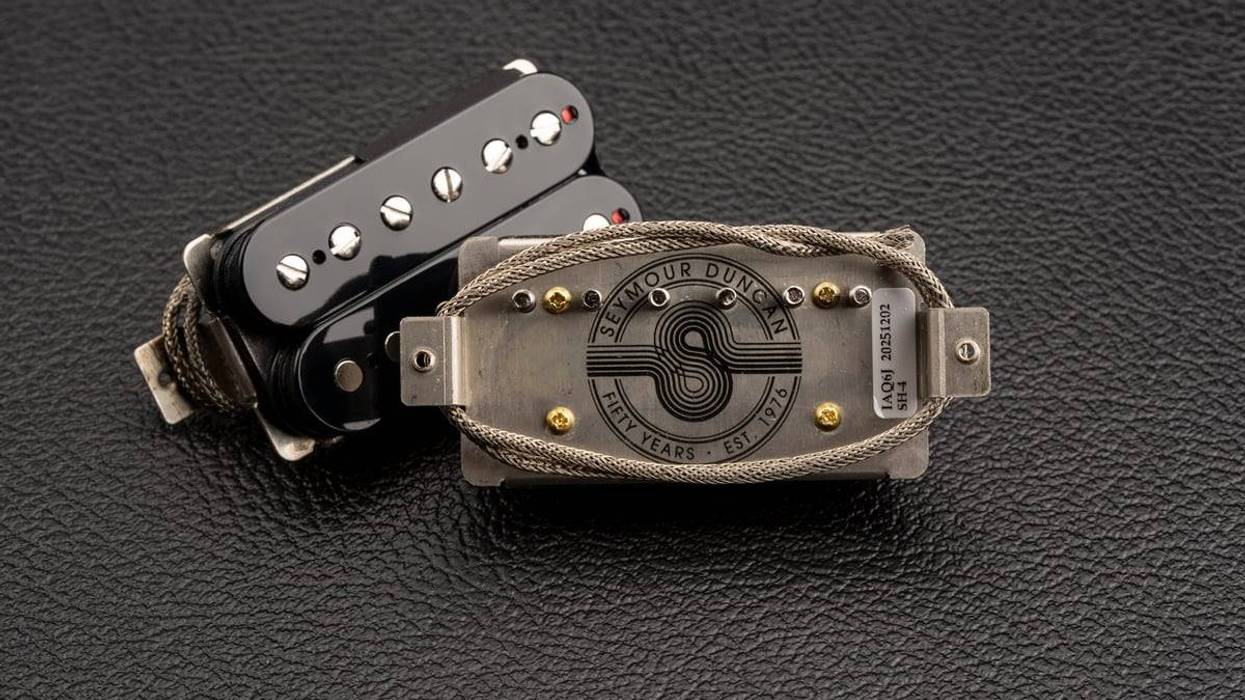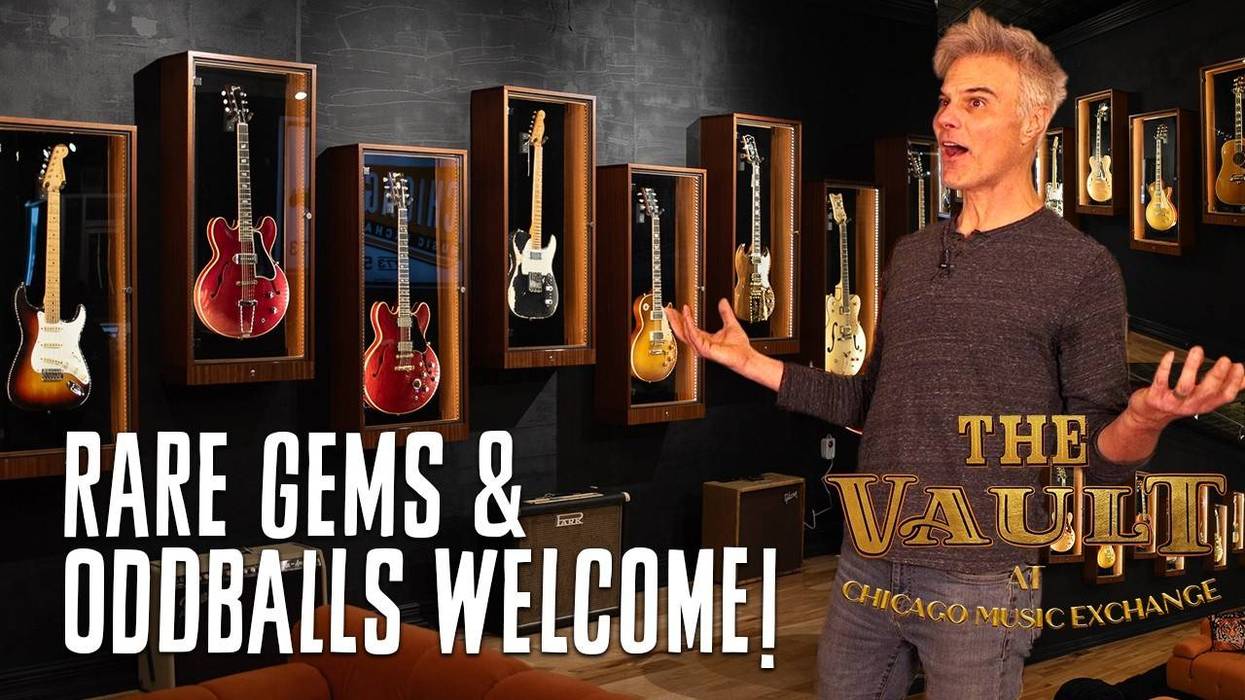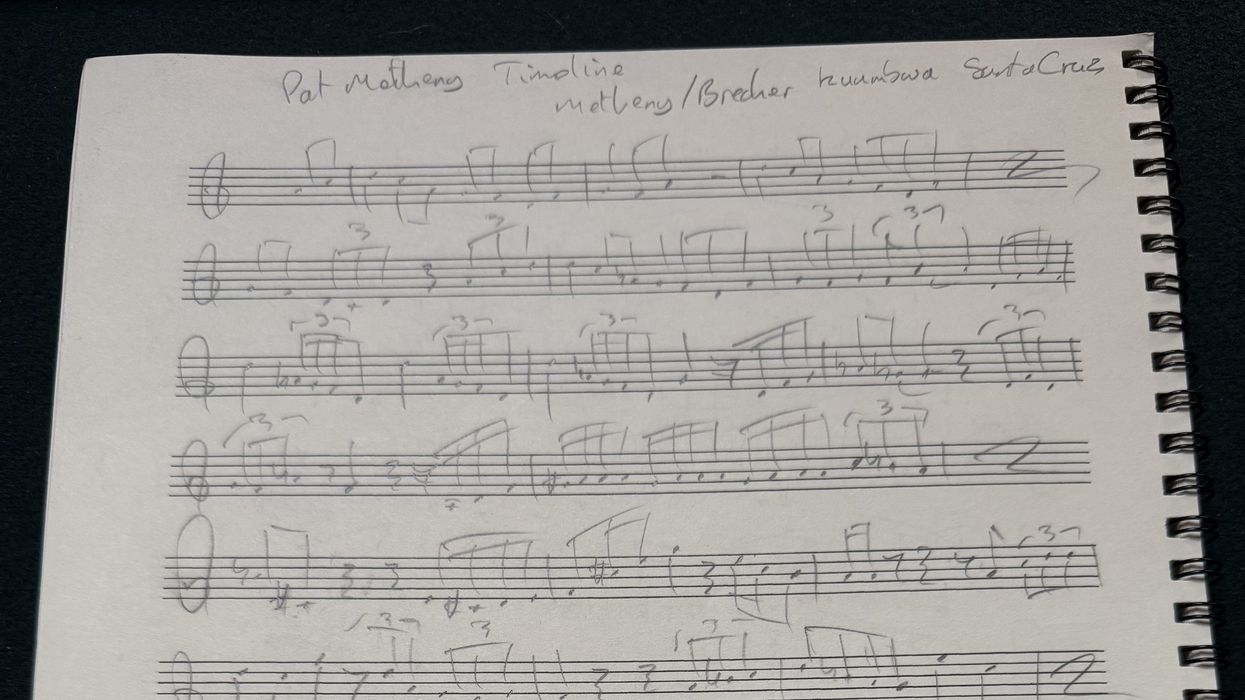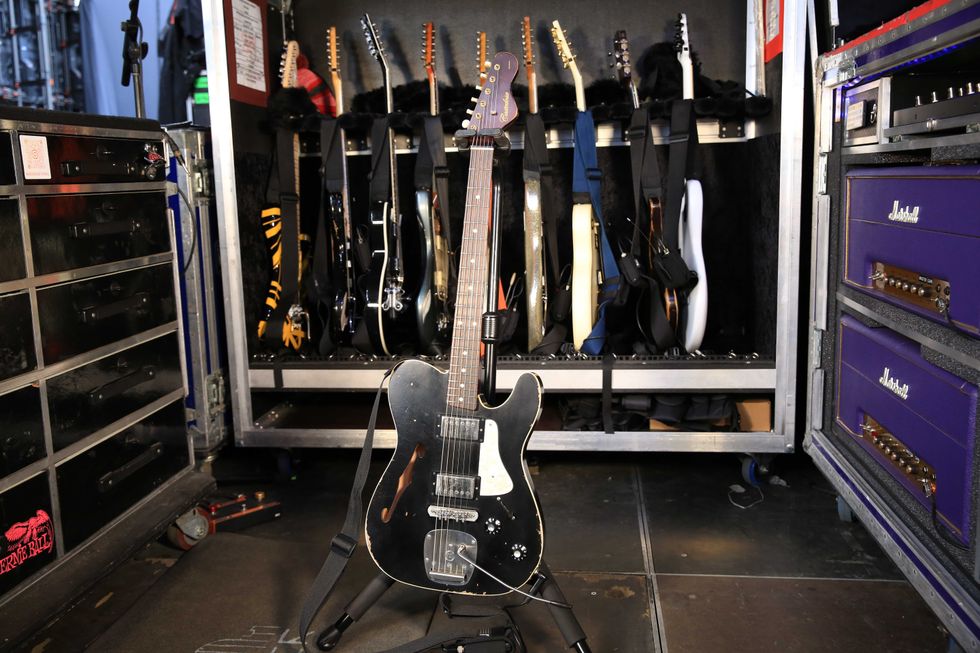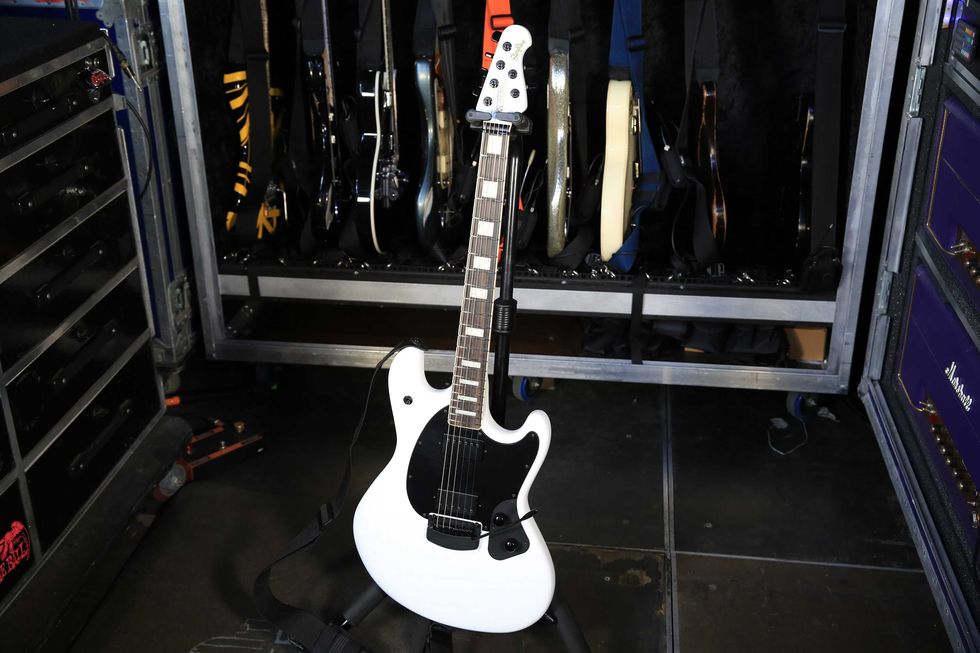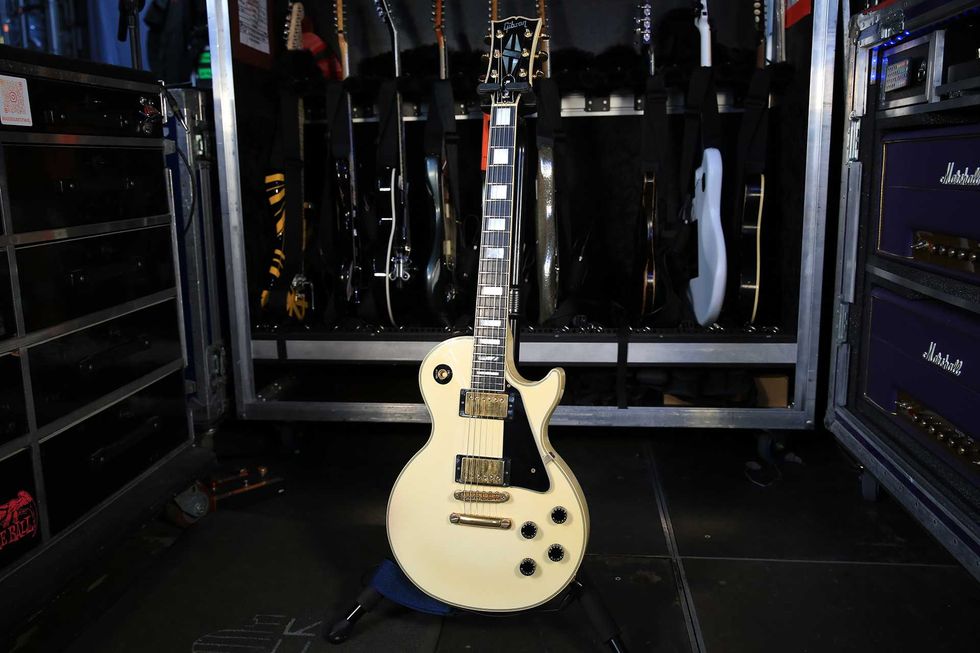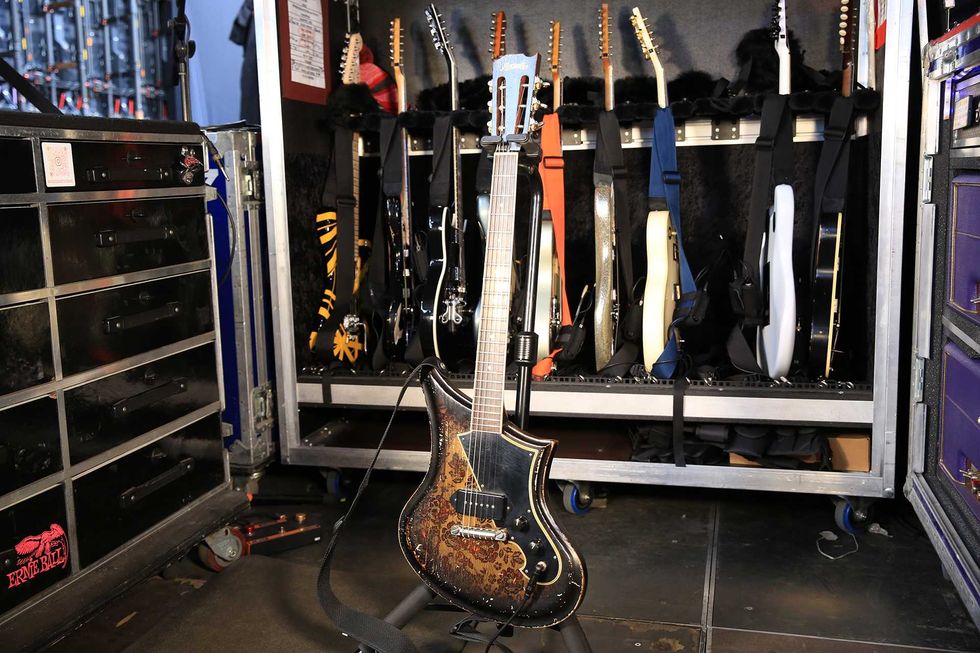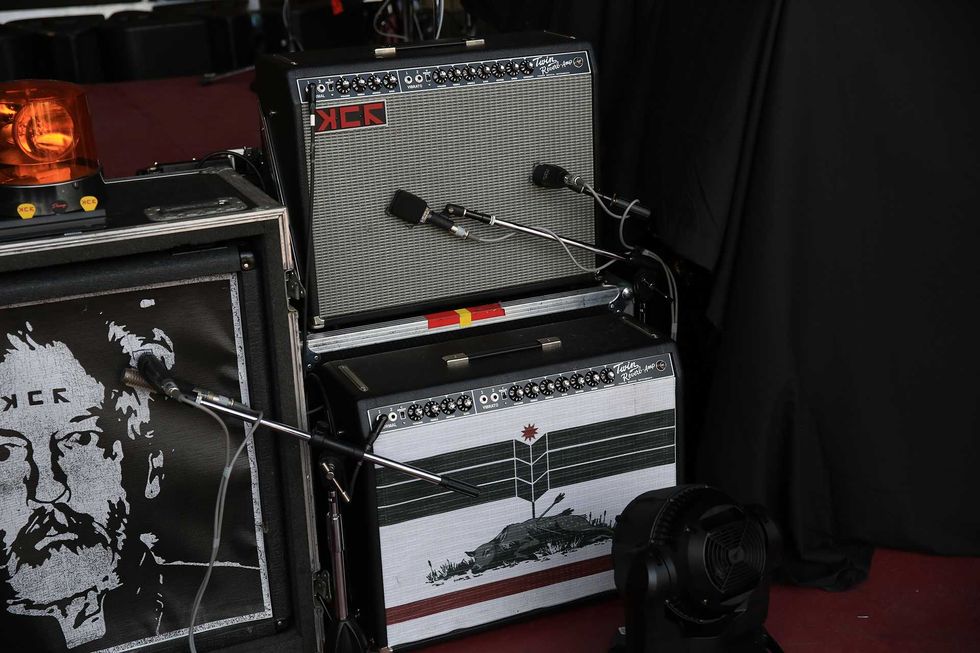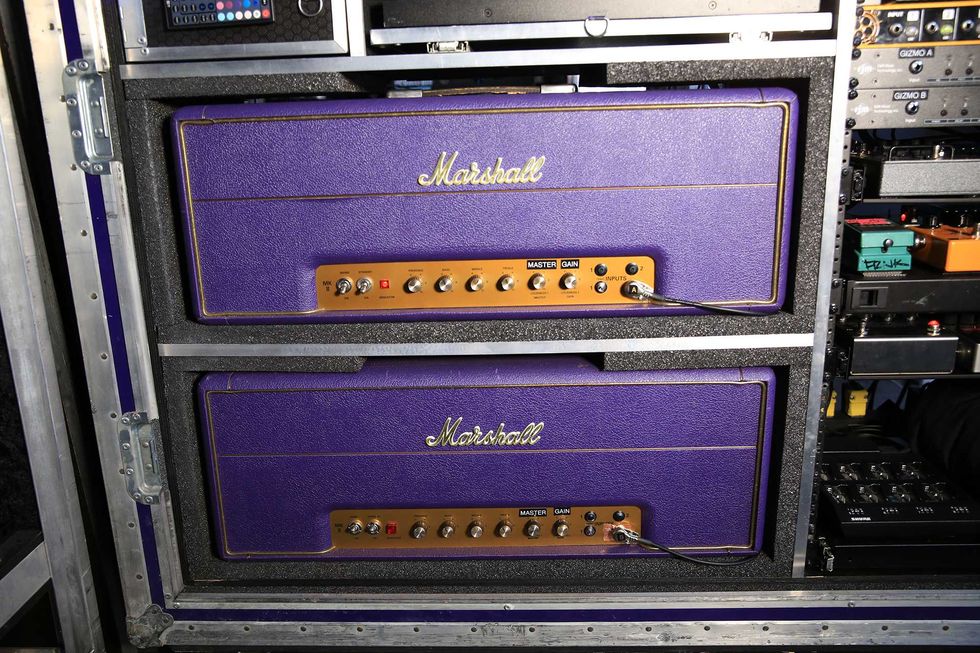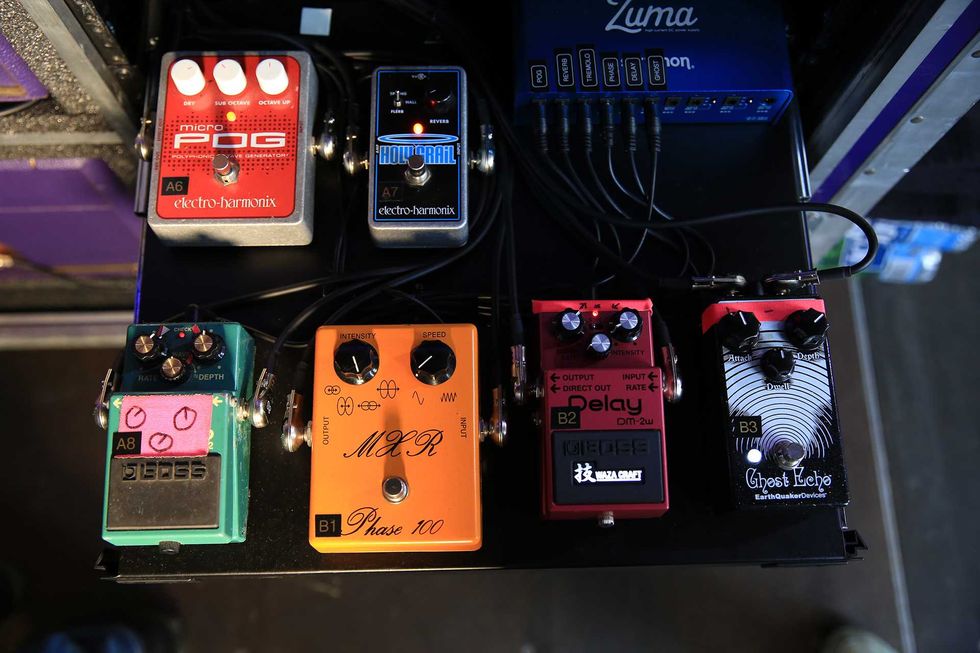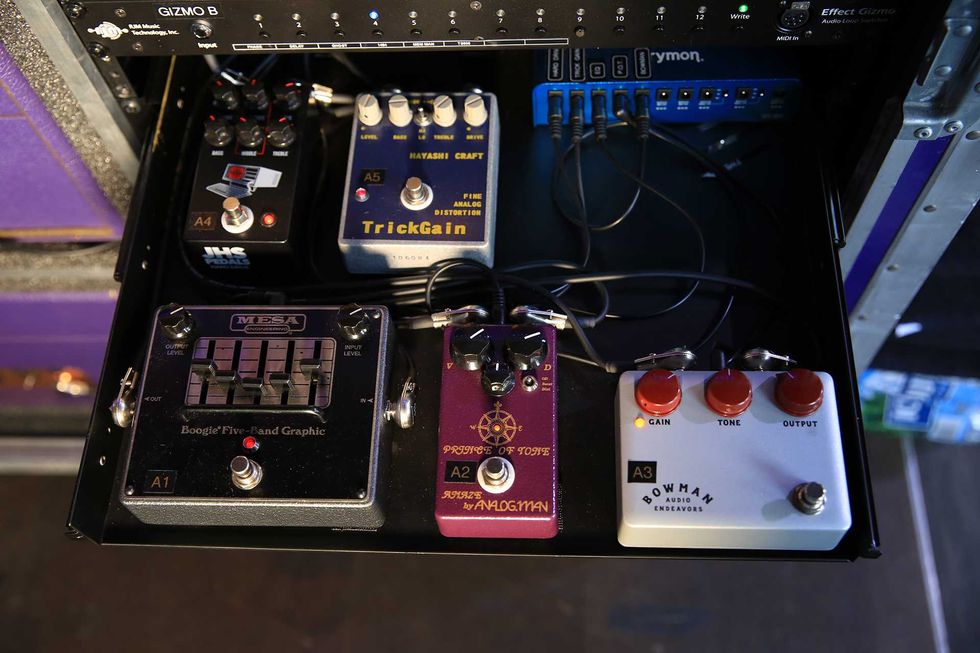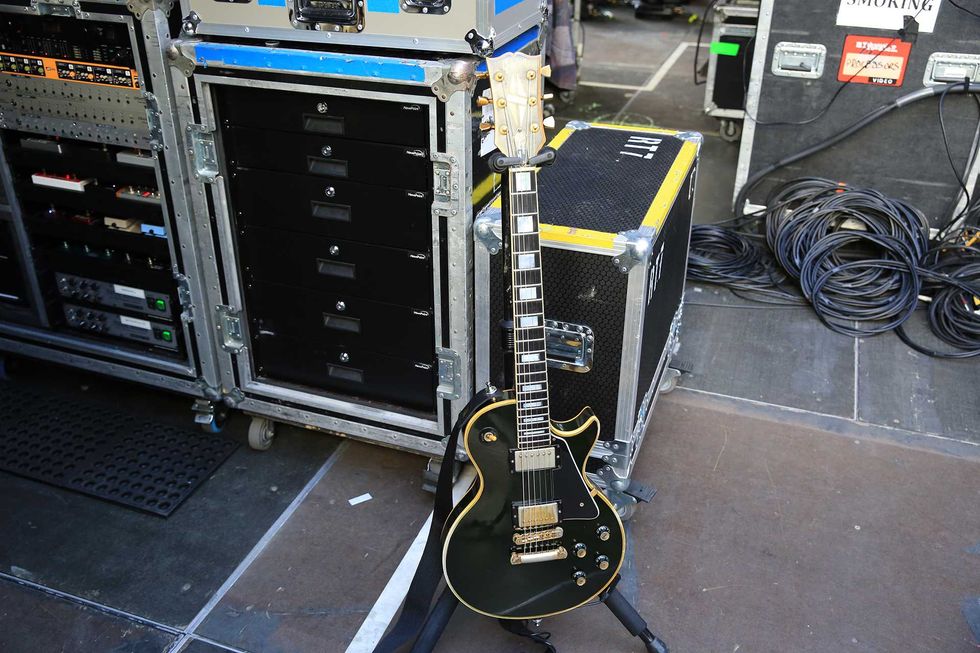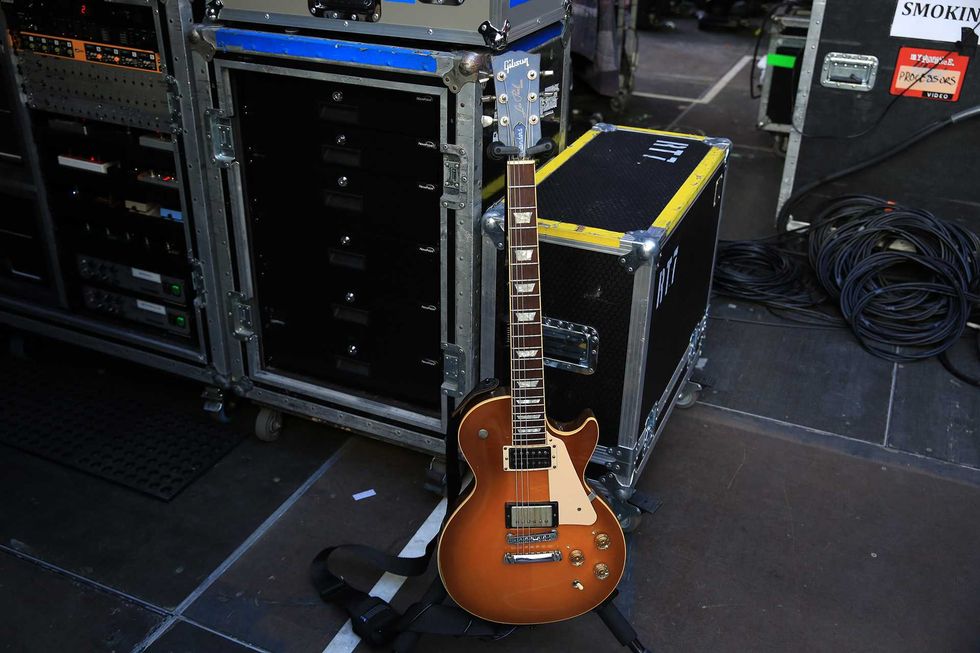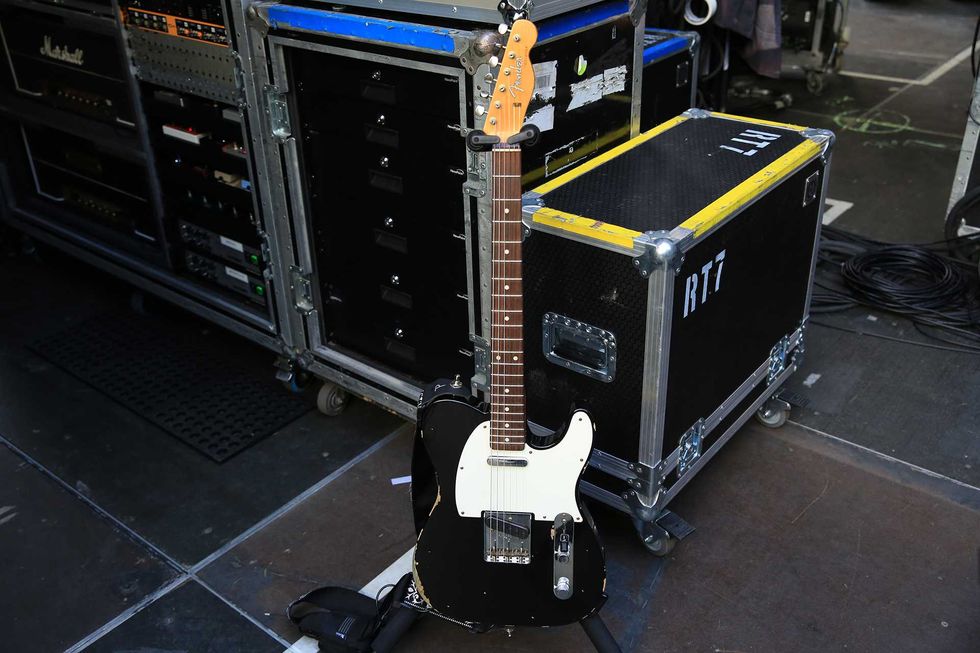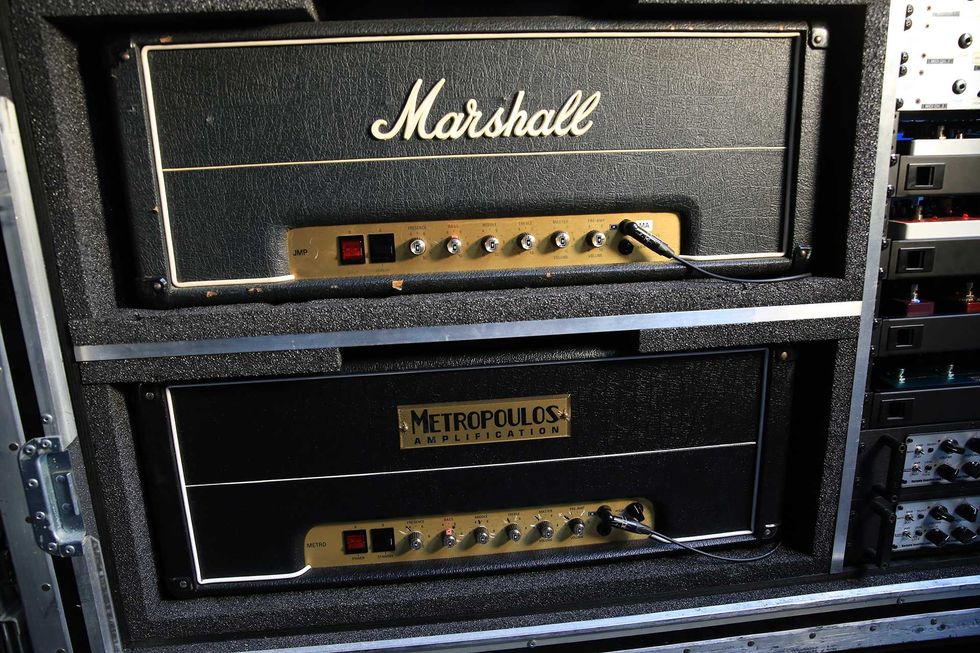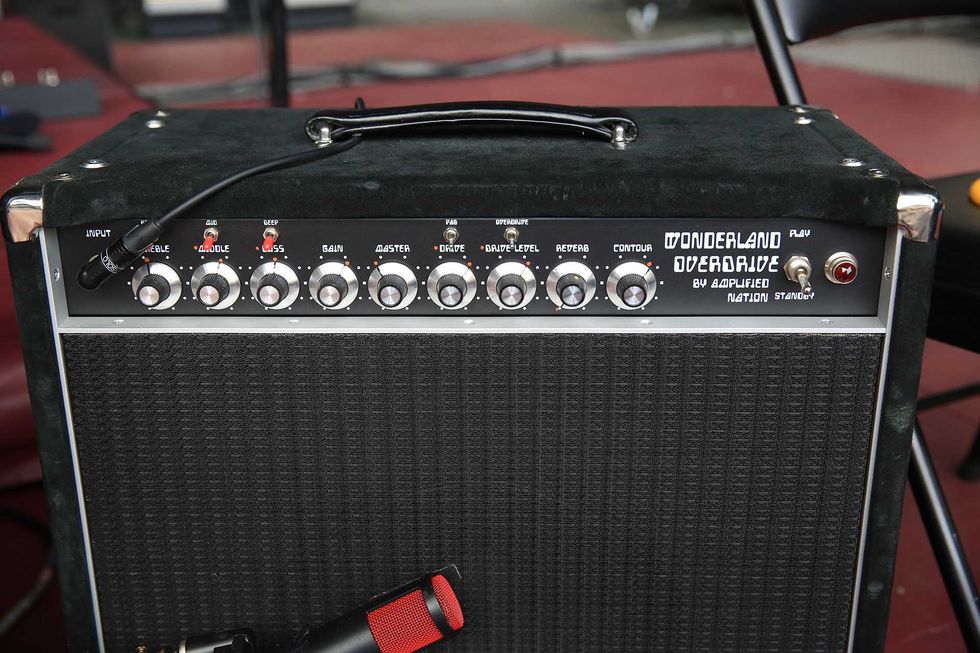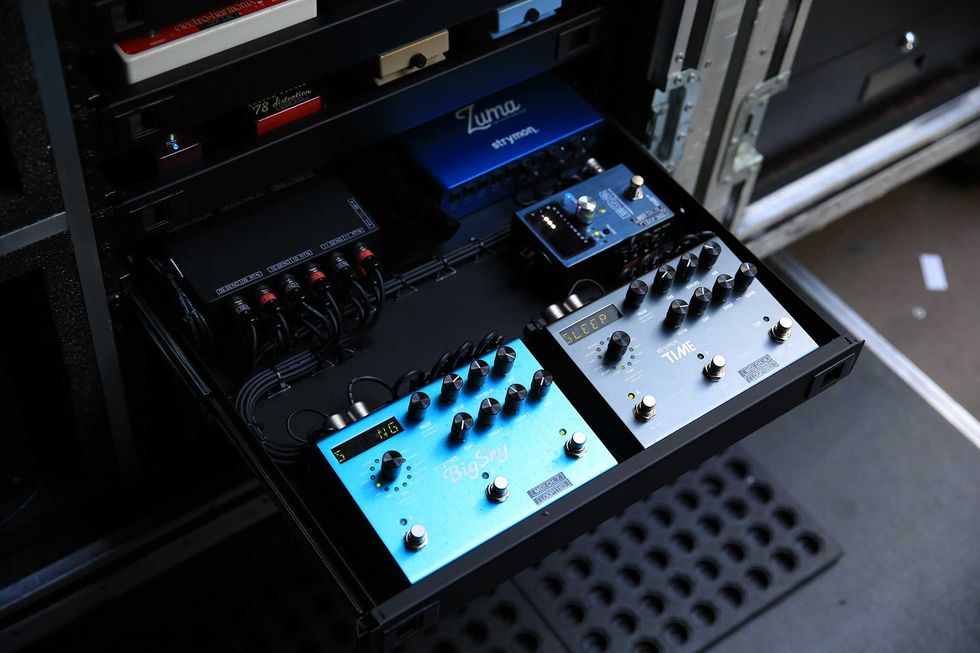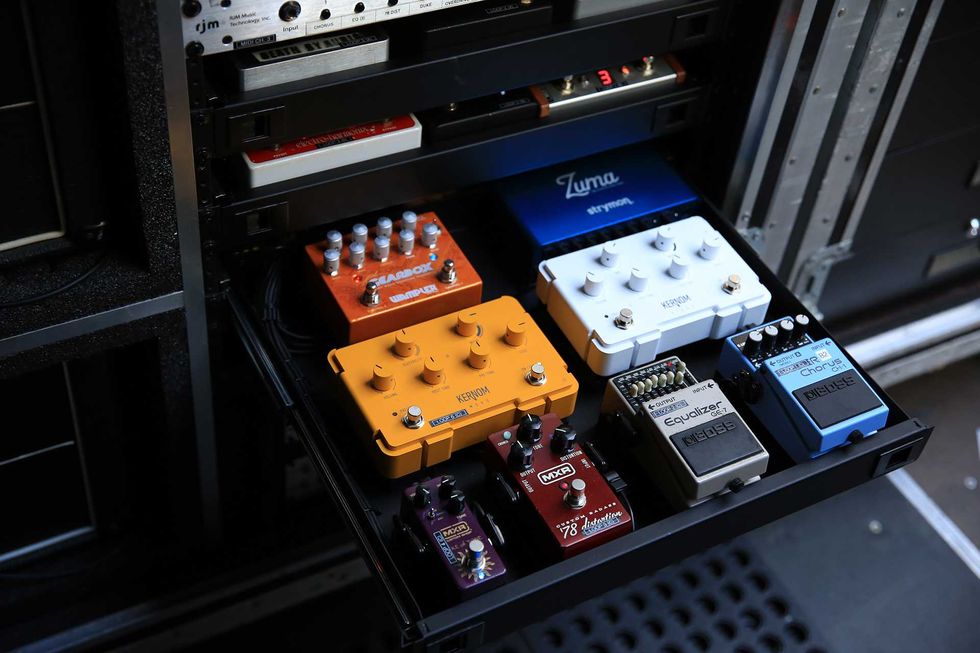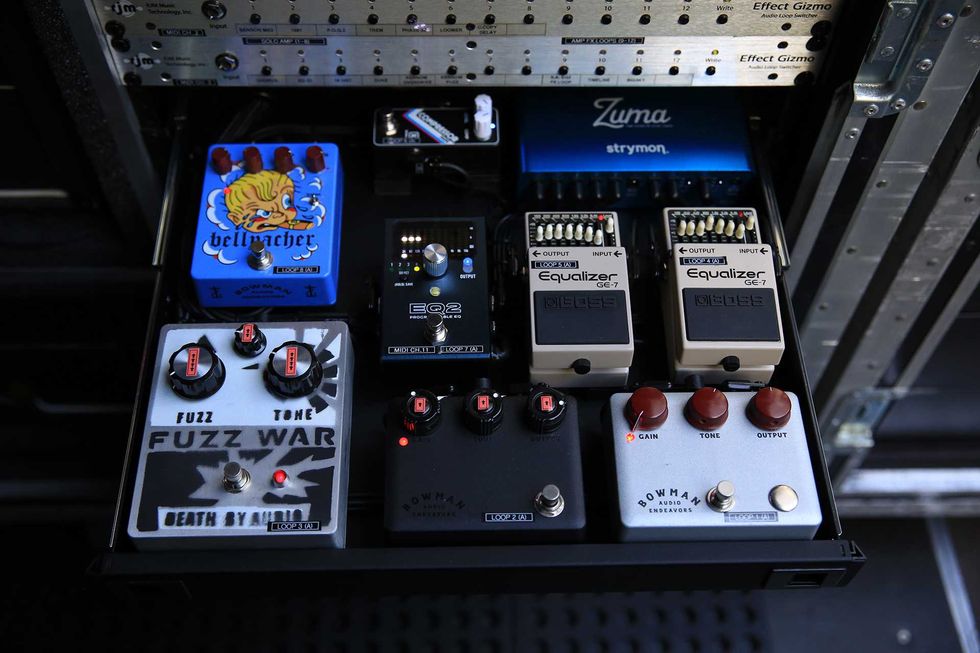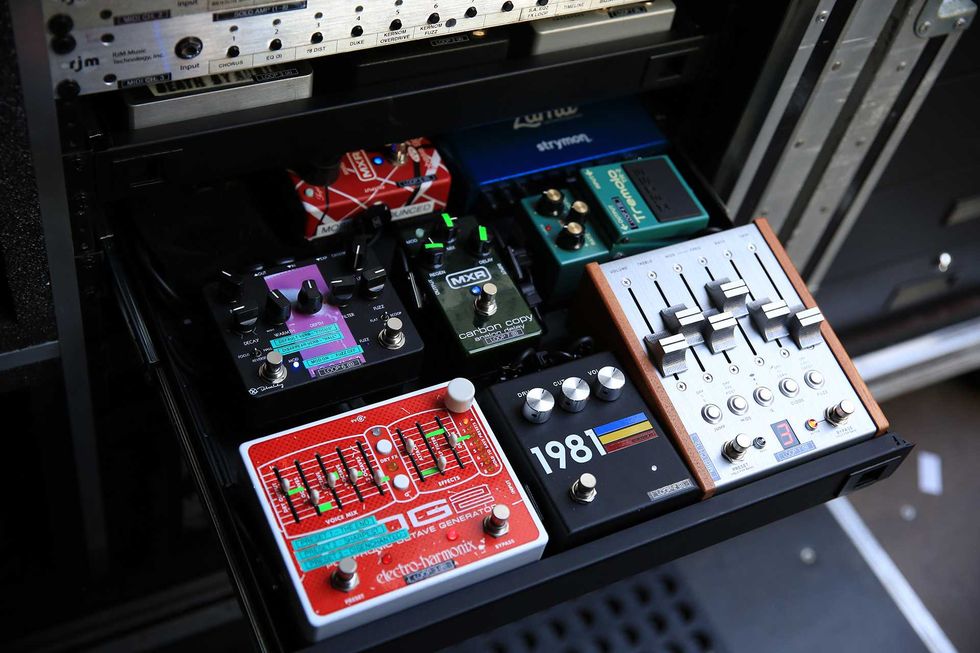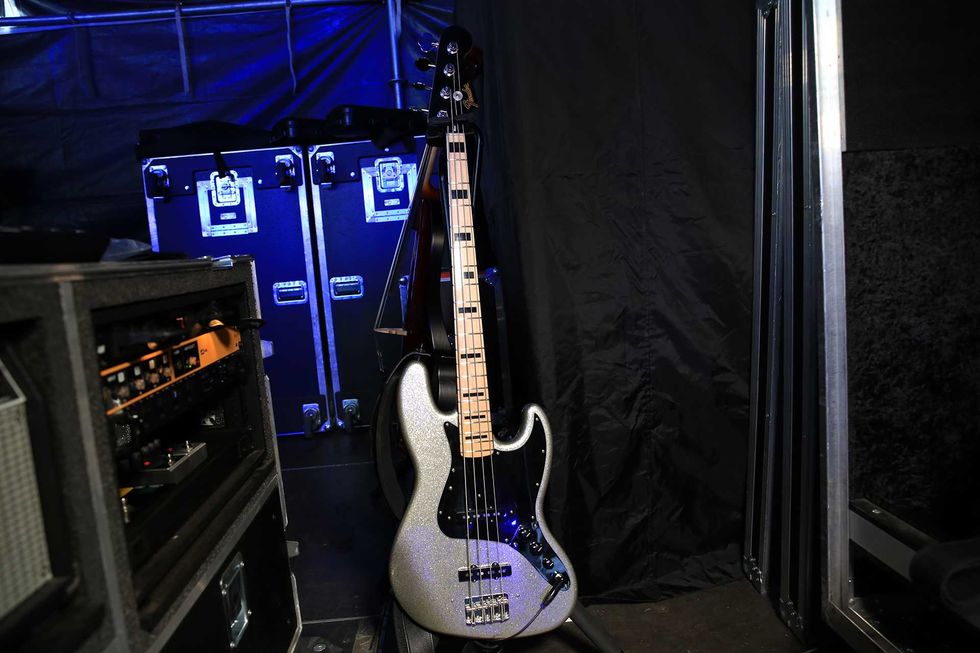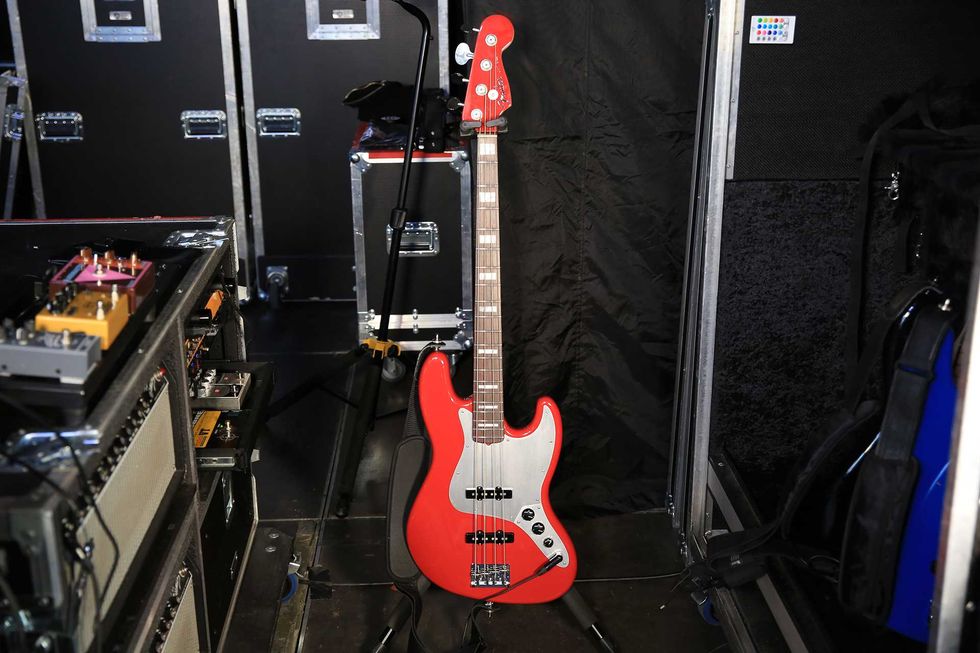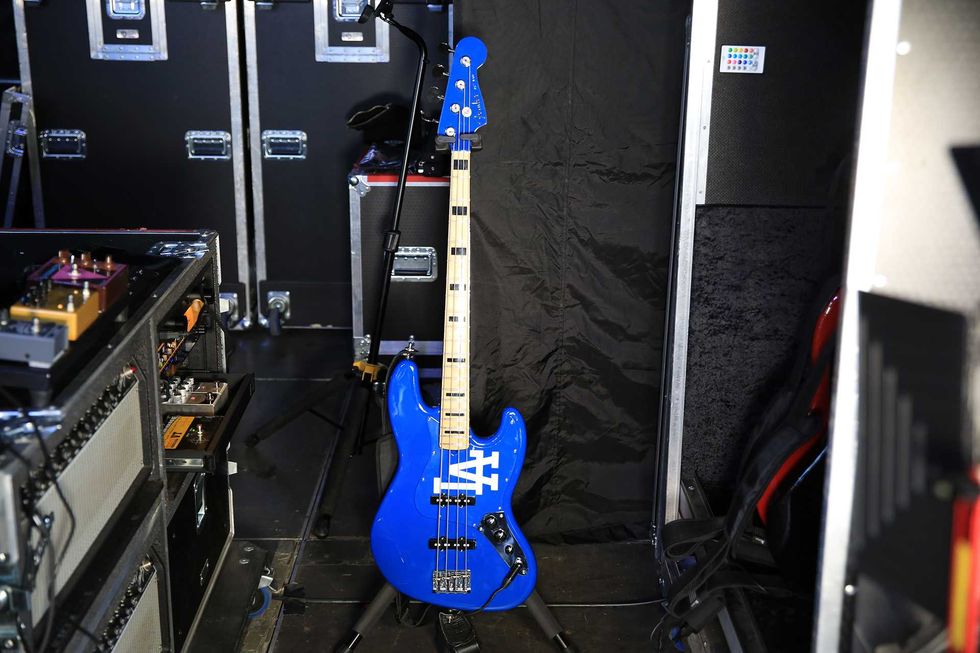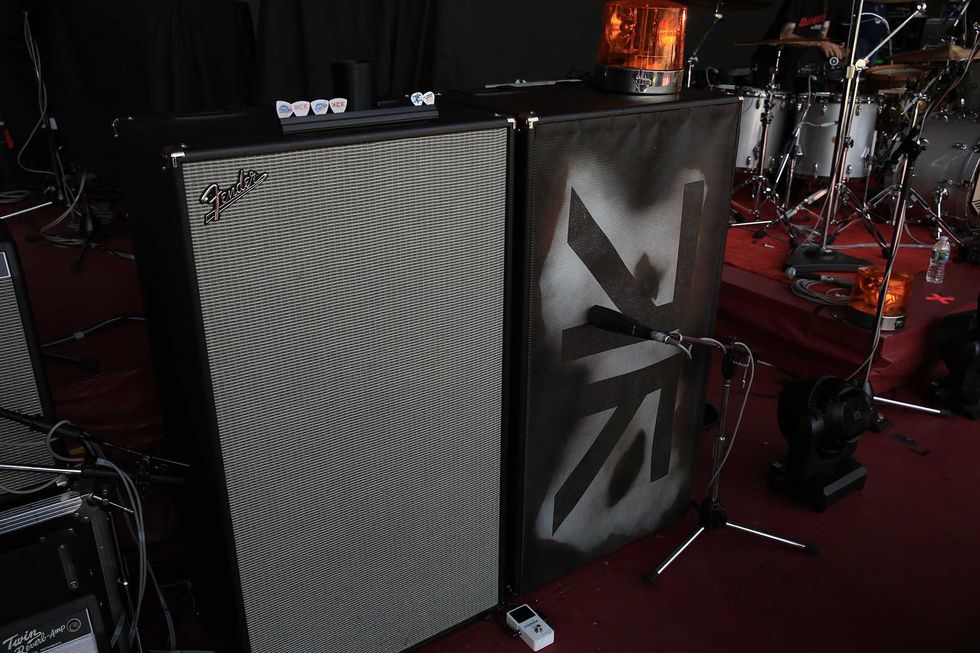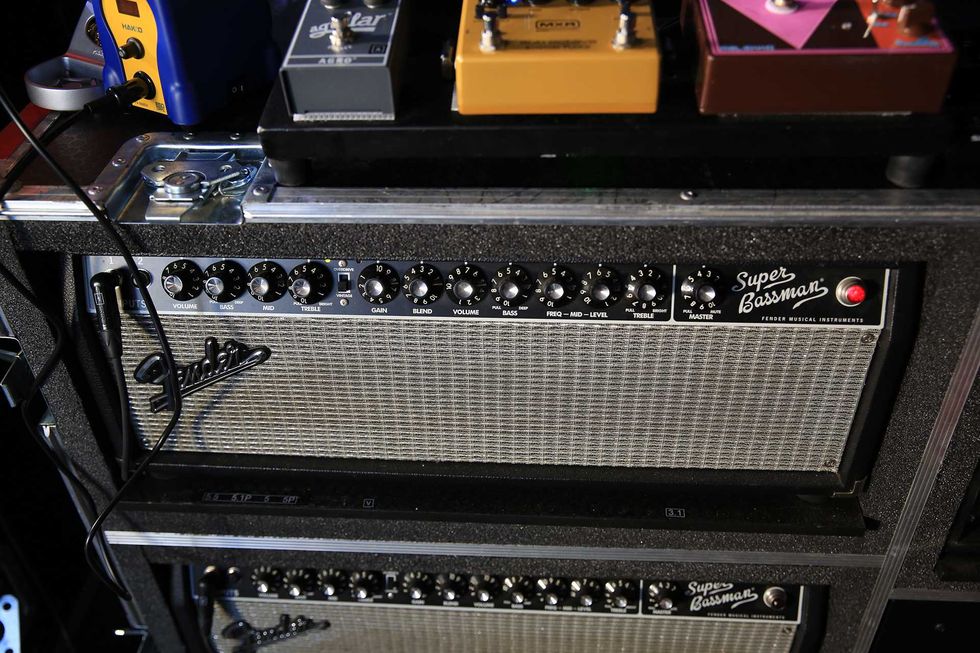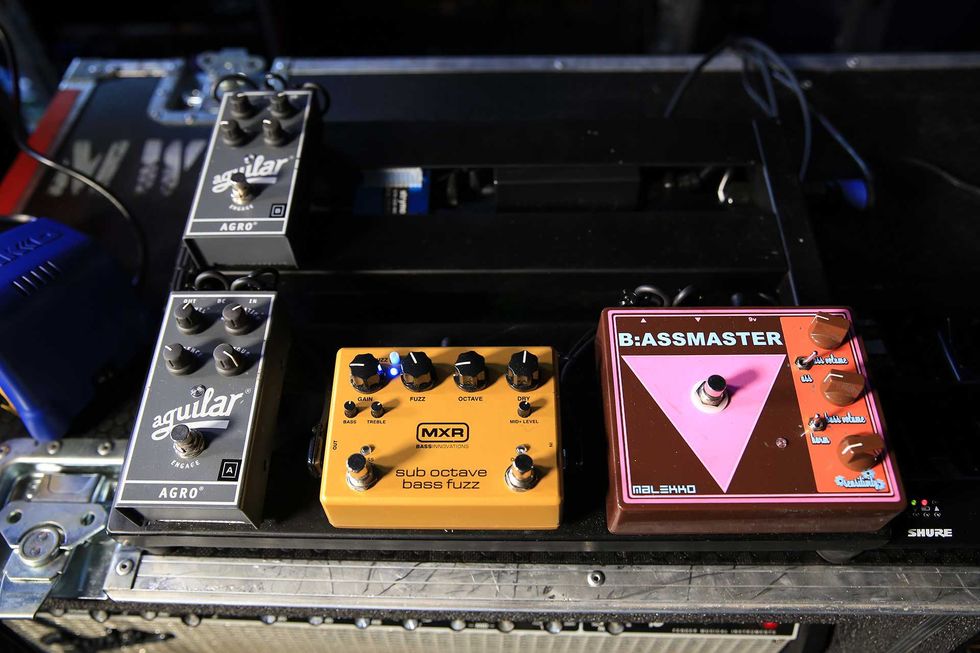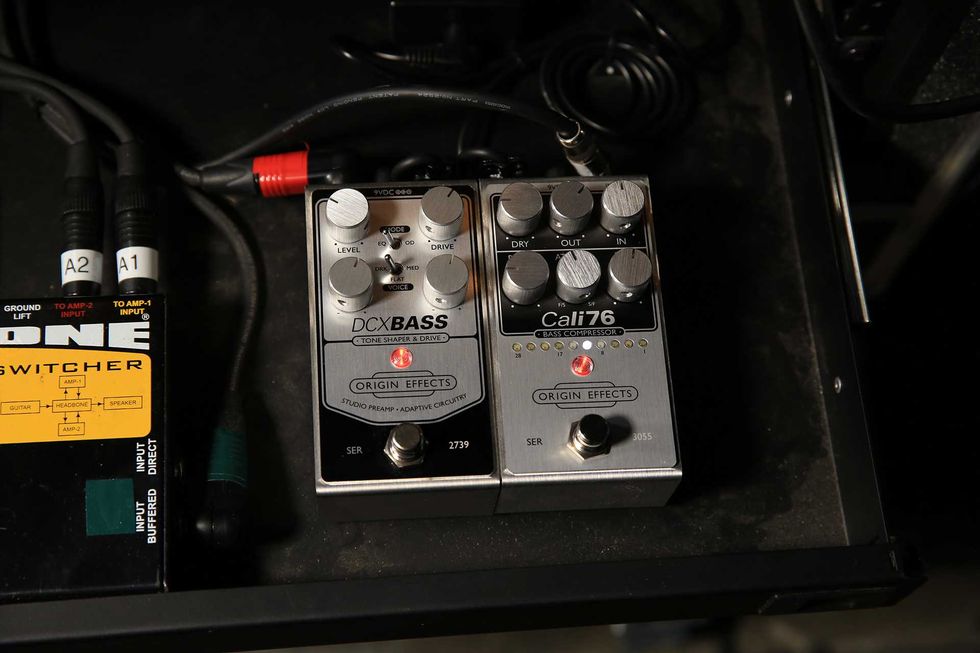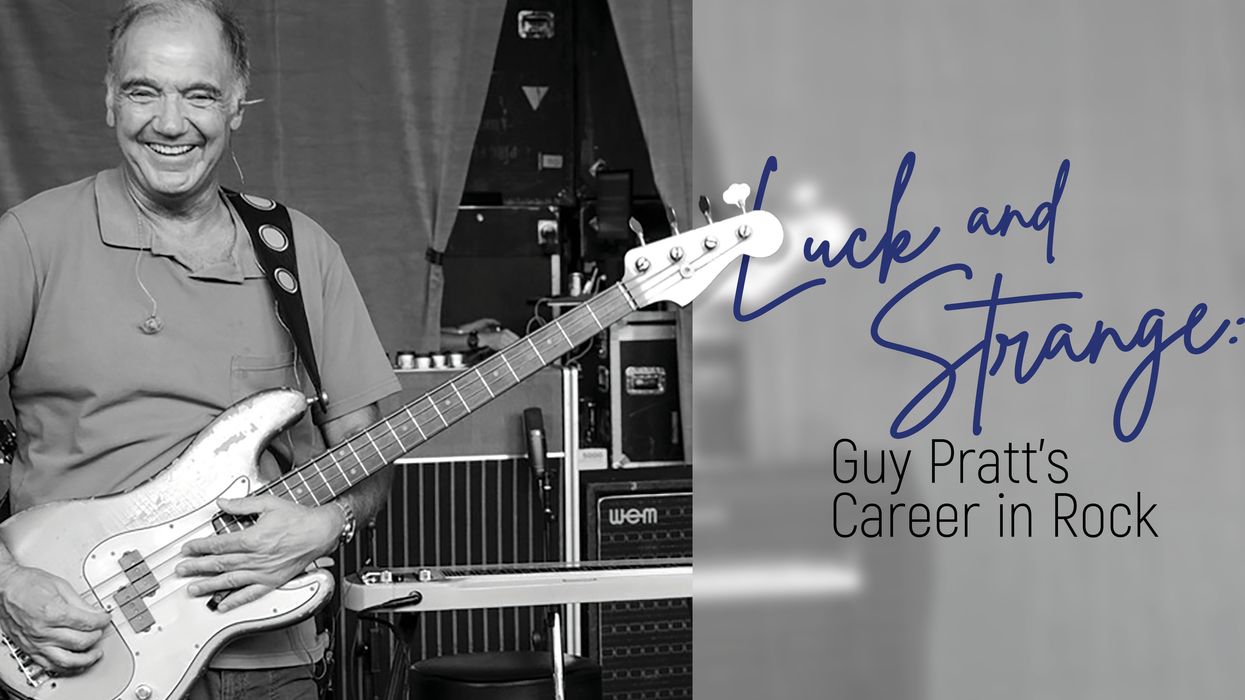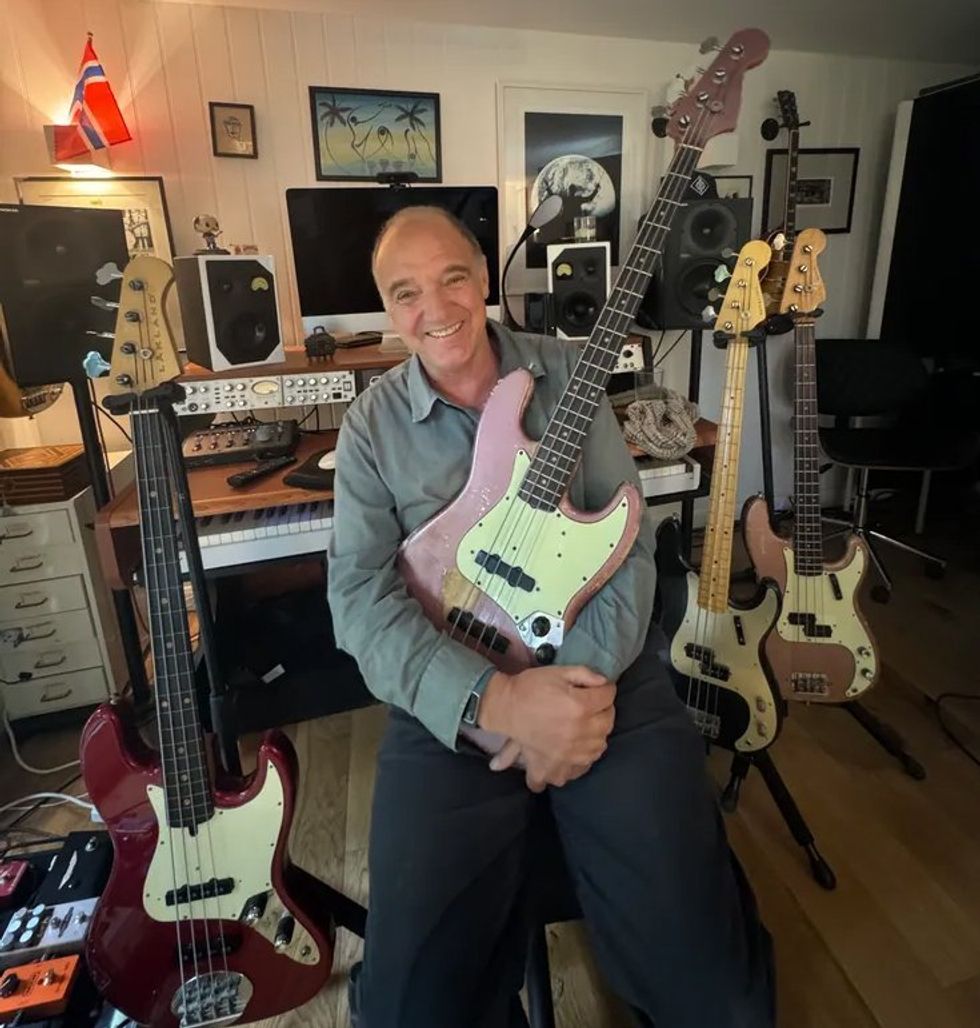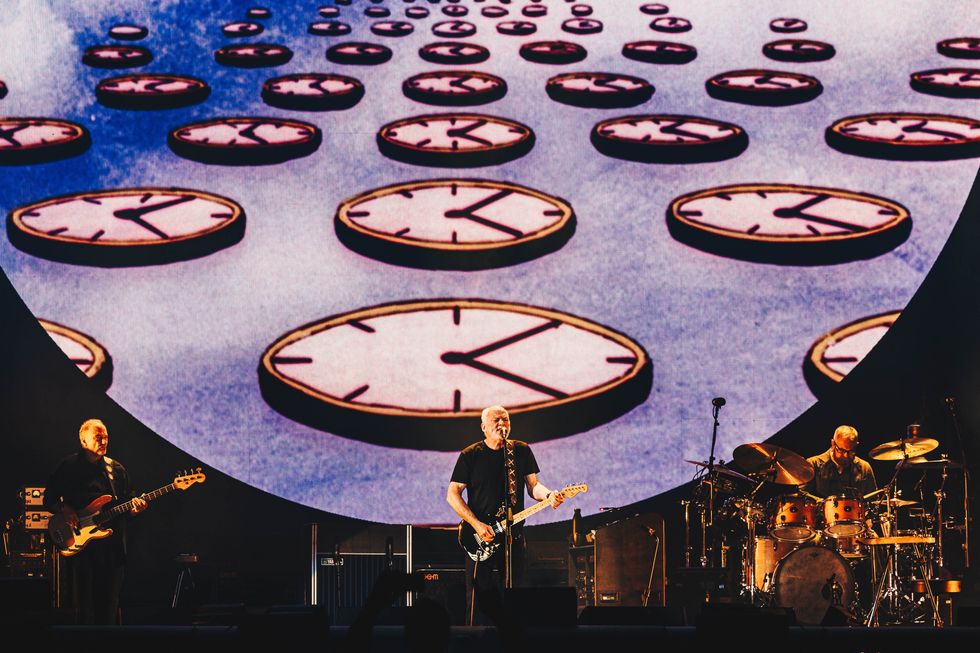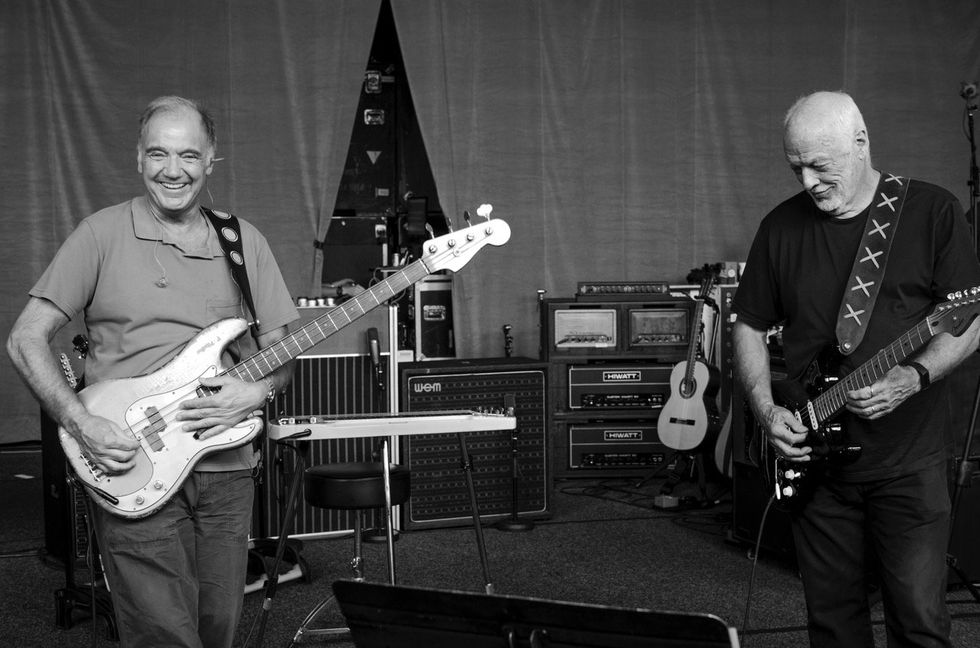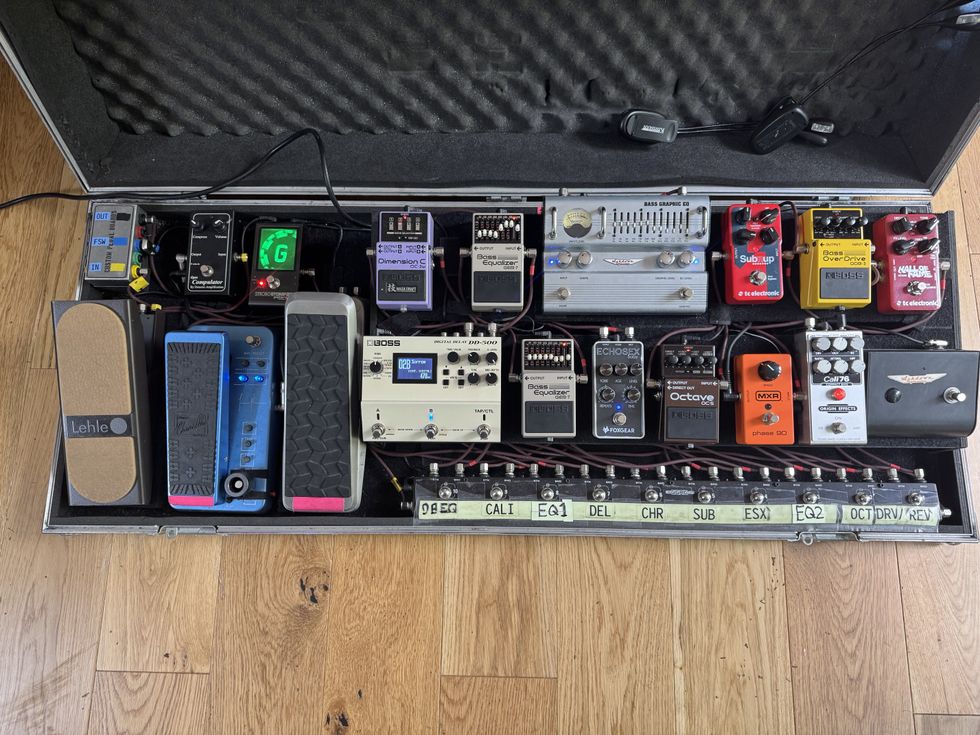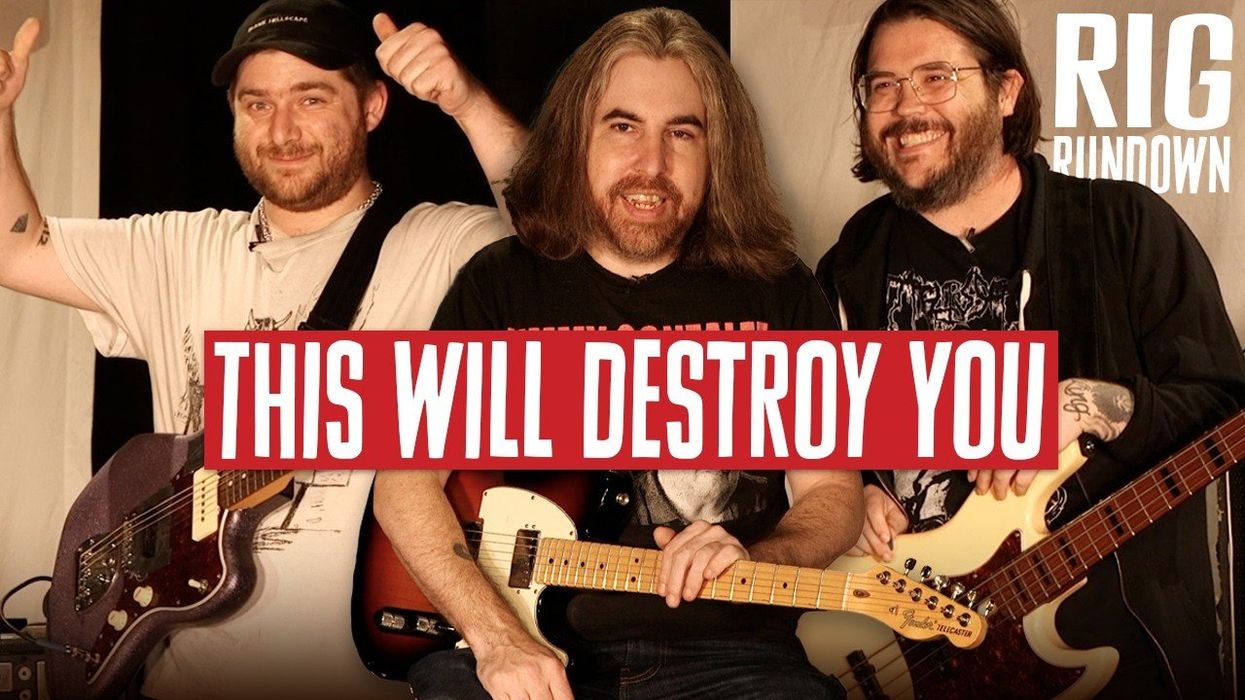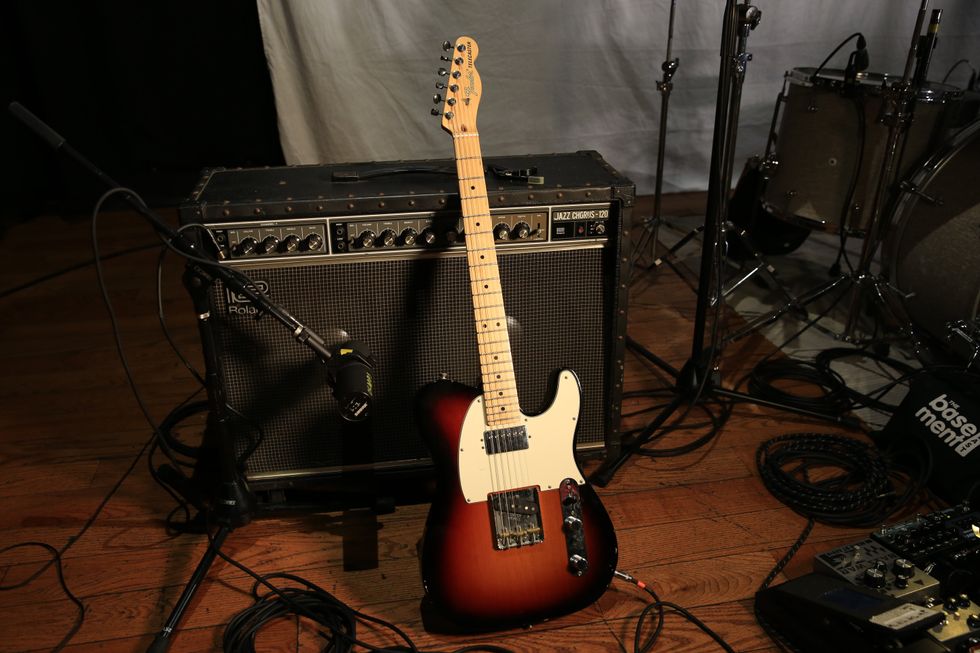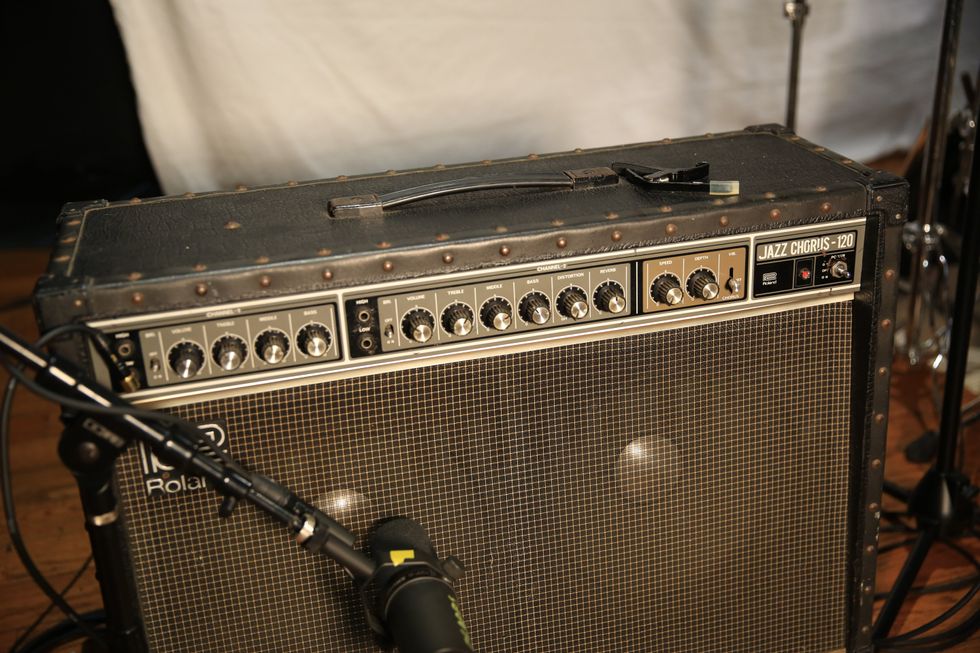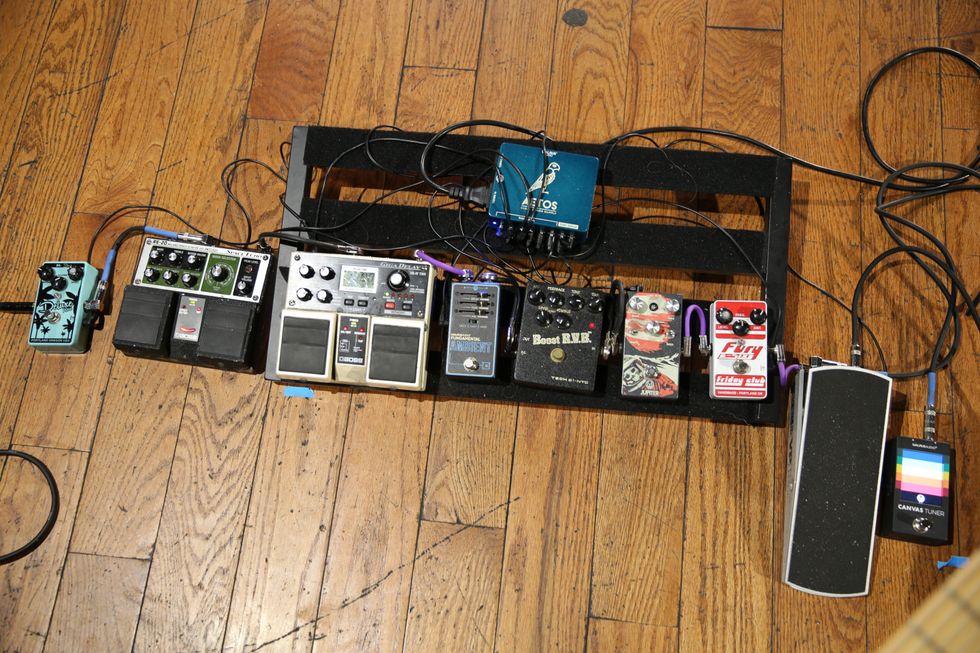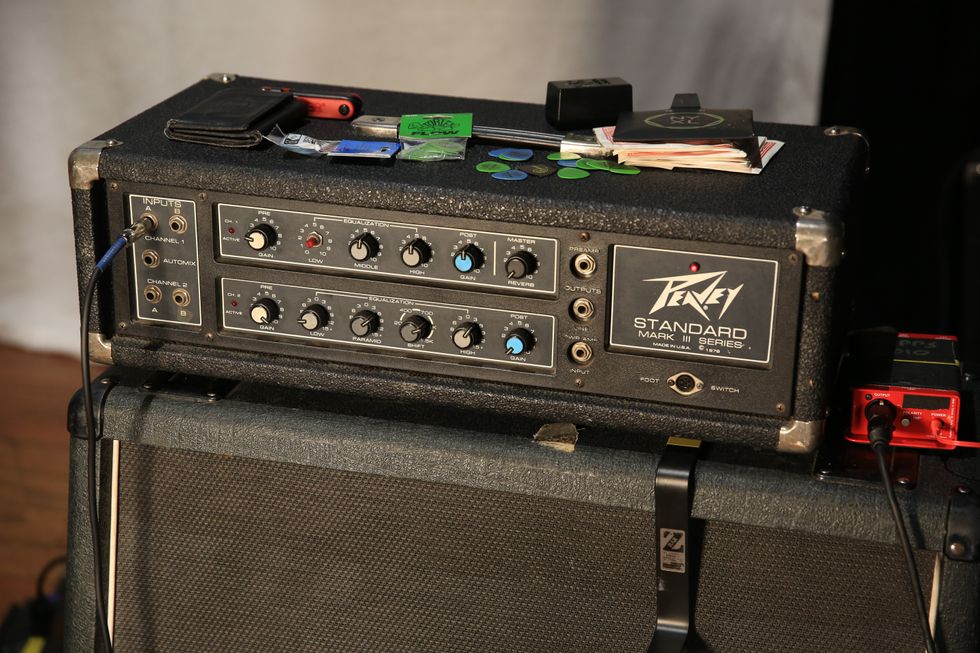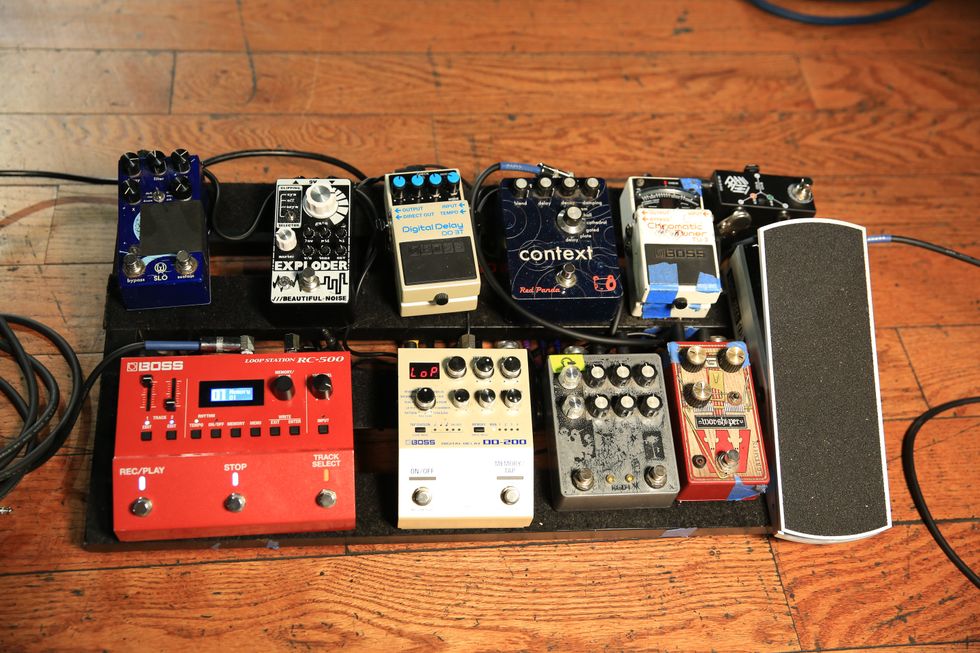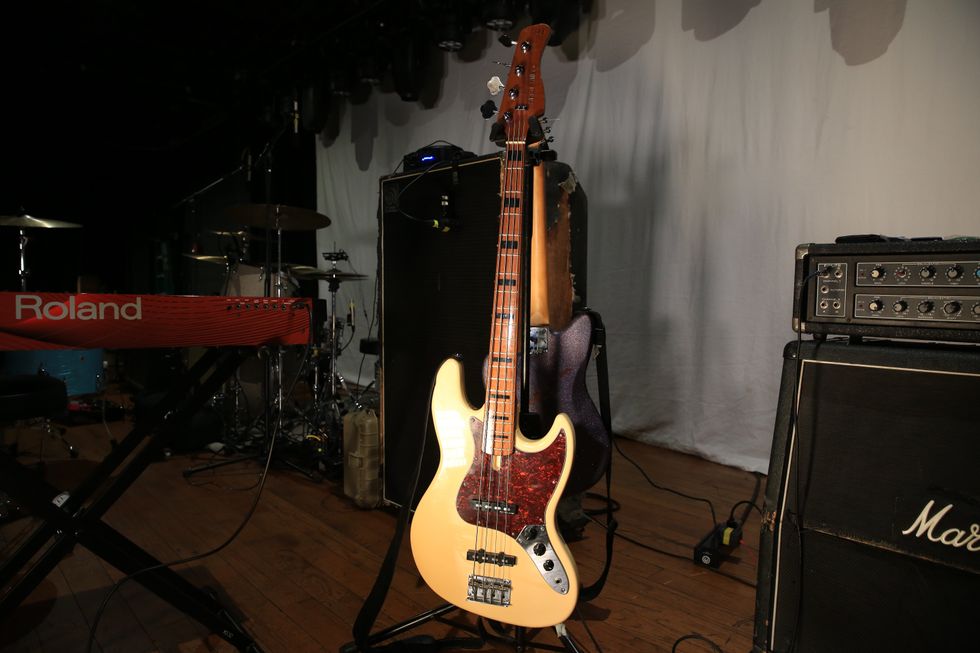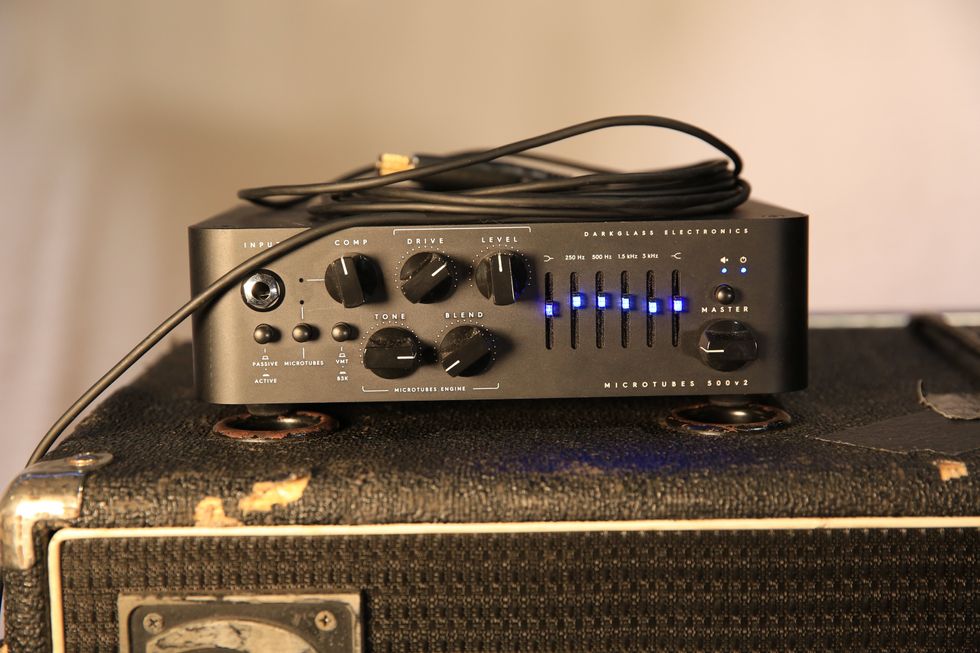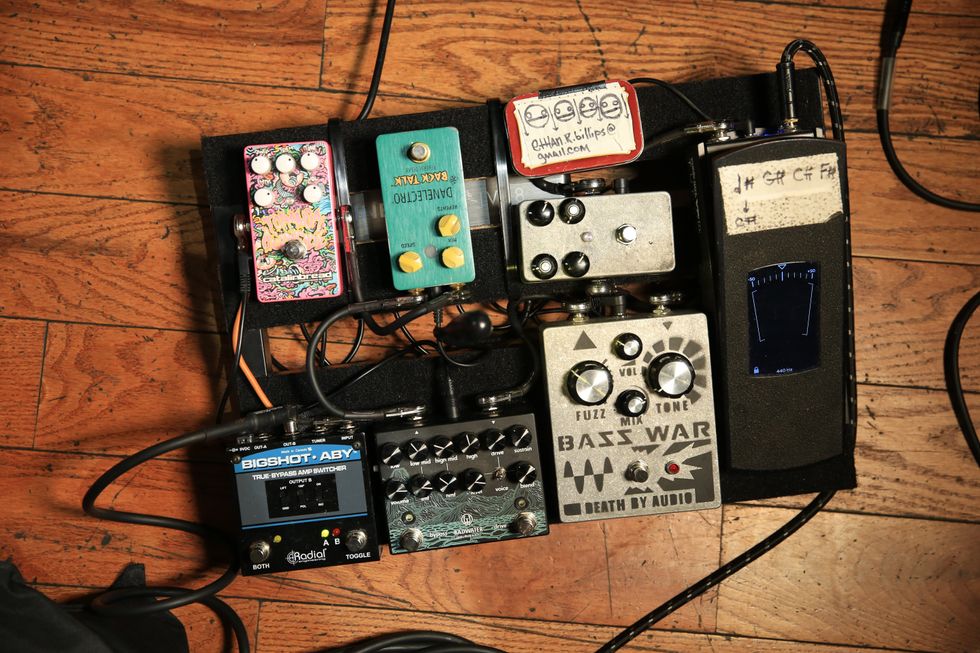| Download Example 1 Recorded with the Manson JPJ signature bass, with bass three-fourths of the way up, treble halfway up, and pickup selector in the middle; the Hipshot is flipped down, too (drop D tuning) | |
| Download Example 2 Recorded with the Manson JPJ signature bass, with bass three-fourths of the way up, treble halfway up, and pickup selector in the middle | |
| Download Example 3 Recorded using a pick on the Manson JPJ signature bass, first with the single-coil option, and then with regular two-pickup sound and pickup selector in the middle, bass three-fourths of the way up, treble halfway up. It’s hard to hear the subtle difference except for the volume drop. |
As he enters his mid 60s, Jones continues to play with a wide variety of musicians, from bluegrass fiddler Sara Watkins to hardrockin’ Them Crooked Vultures bandmates Josh Homme and Dave Grohl. Take all those experiences and combine them with the résumé of luthier, repairman, and guitar-shop owner Hugh Manson, who has built instruments for Jones since the ’70s and worked as a tech for him since the ’90s, and you’ll understand why we were pretty excited to try this fruit of their collaboration—the John Paul Jones signature model.
Relative Simplicity
Given the out-of-the-ordinary nature of other JPJ/Manson collaborations, which include 8-strings and mandolins, I wasn’t sure whether it would be a 12-string, a lap-steel bass, or a triple-necked monster! Turns out it’s a 4-string with straightforward controls whose only concessions to the unorthodox are an eye-catching body and a Hipshot D-Tuner.
The JPJ is a great-looking instrument with an interesting shape and a matching headstock that doesn’t draw undue attention. I loved the high-gloss, aged cherryburst lacquer over the two-piece, book-matched, quilted maple top, and the stripe down the back—evidence of the neck-through design—is gorgeous. The big, black Badass II bridge certainly looks like it means business, and it matches the Schaller tuners, the Hipshot D-Tuner, and the strap pins. The three black knobs (Master Volume, a pickup selector, and a stacked Treble/Bass knob) are elegant and simple. The electronics are straightforward: You can use the pickup selector to choose the EMG-35TW dual-coil bridge pickup or the EMG-35P4 neck pickup, or you can pull the pickup selector to activate the bridge single-coil.
That’s the Way
Even after a few weeks in customs, our test bass arrived set up relatively well. The bass was heavier than we expected (chalk it up to the mahogany body and the Badass bridge). But there was a payoff for all that heft—the bass sounded great and loud, even before we plugged it in.
For bassists accustomed to Fender Jazz Basses, the Manson JPJ’s slim, 34"-scale neck will feel very familiar. And there are a few extra notes on tap beyond what an old Fender offers, as well as a cutaway that makes it easy to reach all 24 frets on the ebony fretboard. It really is a player’s design.
Plugged in, the Manson JPJ showed its true colors and ready-for-anything attitude. The mahogany and maple-capped body lent a thick and warm character—strong and barky in the mids, but not muddy. The Manson JPJ’s neck-through design—which tends to increase sustain, intonation, and note resolution— and Badass II bridge also seemed to improve sustain and conspired with the other construction elements to create a basically hefty tone that cuts through the mix while maintaining plenty of low end.
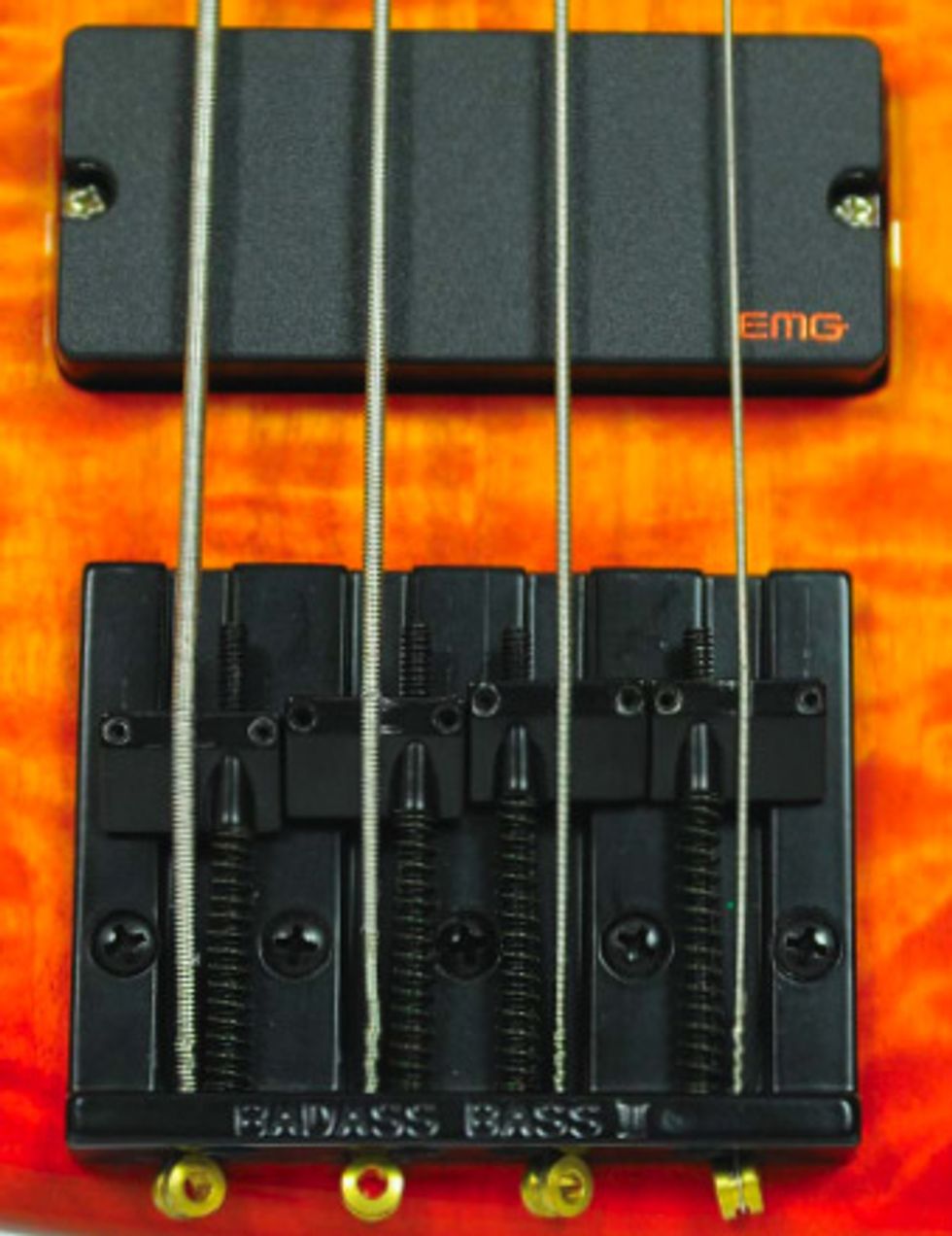 Playing around with the Manson JPJ’s
EMG pickups put several variations on this
basic tone palette at my disposal. Soloing the
back pickup while adding bass and rolling
off treble resulted in a nice variation on the
modern, back-pickup J-Bass sound, and highlighting
the front pickup with various levels of
treble and bass produced an active sound with
scooped mids. Even turning up the treble for a
woody, “stringy” sound, gave me plenty of low
end to work with. Throwing subtlety to the
wind, I dimed the treble and bass and kept
the pickup selector right in the middle, which
gave me a warm, tight rock tone with strong
mids and focus. Turning the tone controls
down can deliver a thick, dub-ready sound—a
texture that plays nicely into the mahogany’s
capacity for dark tones. But judicious use of
the treble typically brought out the details in
the JPJ’s natural sound in whatever pickup
configuration I was toying with at the time.
In general, the EMG pickups are quiet and
a little less aggressive than some of their brethren.
Cruising the two-octave fretboard, I was
able to conjure some very workable, popping
slap tones. But I wasn’t always crazy about the
single-coil option—after experiencing the fullness
of the EMGs, the back-pickup single-coil
sounded a bit thin, which is clearly not what
this bass is about.
Playing around with the Manson JPJ’s
EMG pickups put several variations on this
basic tone palette at my disposal. Soloing the
back pickup while adding bass and rolling
off treble resulted in a nice variation on the
modern, back-pickup J-Bass sound, and highlighting
the front pickup with various levels of
treble and bass produced an active sound with
scooped mids. Even turning up the treble for a
woody, “stringy” sound, gave me plenty of low
end to work with. Throwing subtlety to the
wind, I dimed the treble and bass and kept
the pickup selector right in the middle, which
gave me a warm, tight rock tone with strong
mids and focus. Turning the tone controls
down can deliver a thick, dub-ready sound—a
texture that plays nicely into the mahogany’s
capacity for dark tones. But judicious use of
the treble typically brought out the details in
the JPJ’s natural sound in whatever pickup
configuration I was toying with at the time.
In general, the EMG pickups are quiet and
a little less aggressive than some of their brethren.
Cruising the two-octave fretboard, I was
able to conjure some very workable, popping
slap tones. But I wasn’t always crazy about the
single-coil option—after experiencing the fullness
of the EMGs, the back-pickup single-coil
sounded a bit thin, which is clearly not what
this bass is about.The Verdict
Like the man it’s named after, the Manson JPJ bass may be rooted in tradition, but it’s firmly in the present. Staring down its $3200 price tag can give pause, but this is an all-around great bass that certainly does justice to Jones’ legacy—which is still being written, by the way—without screaming that it’s a signature model. Unlike many signature basses, which are slightly modified and renamed versions of stock instruments, the Manson JPJ is the first bass from someone who could’ve had a string of signature basses by now. It’s also the product of 15 years of design refinements by a luthier who has built electric instruments for John Paul Jones for over 30 years. If you’re looking for a high-end 4-string that has a strong character all its own while being versatile enough to do whatever you ask of it, the Manson JPJ is a killer. And no less than John Paul himself will vouch for that.
Buy if...
you’re looking for a rockready 4-string that will never, ever be lost in the mix.
Skip if...
you like thick necks, complex tone controls, flyweight basses, or passive-only instruments.
Rating...
Street $2999 - Manson Guitars - mansons.co.uk |


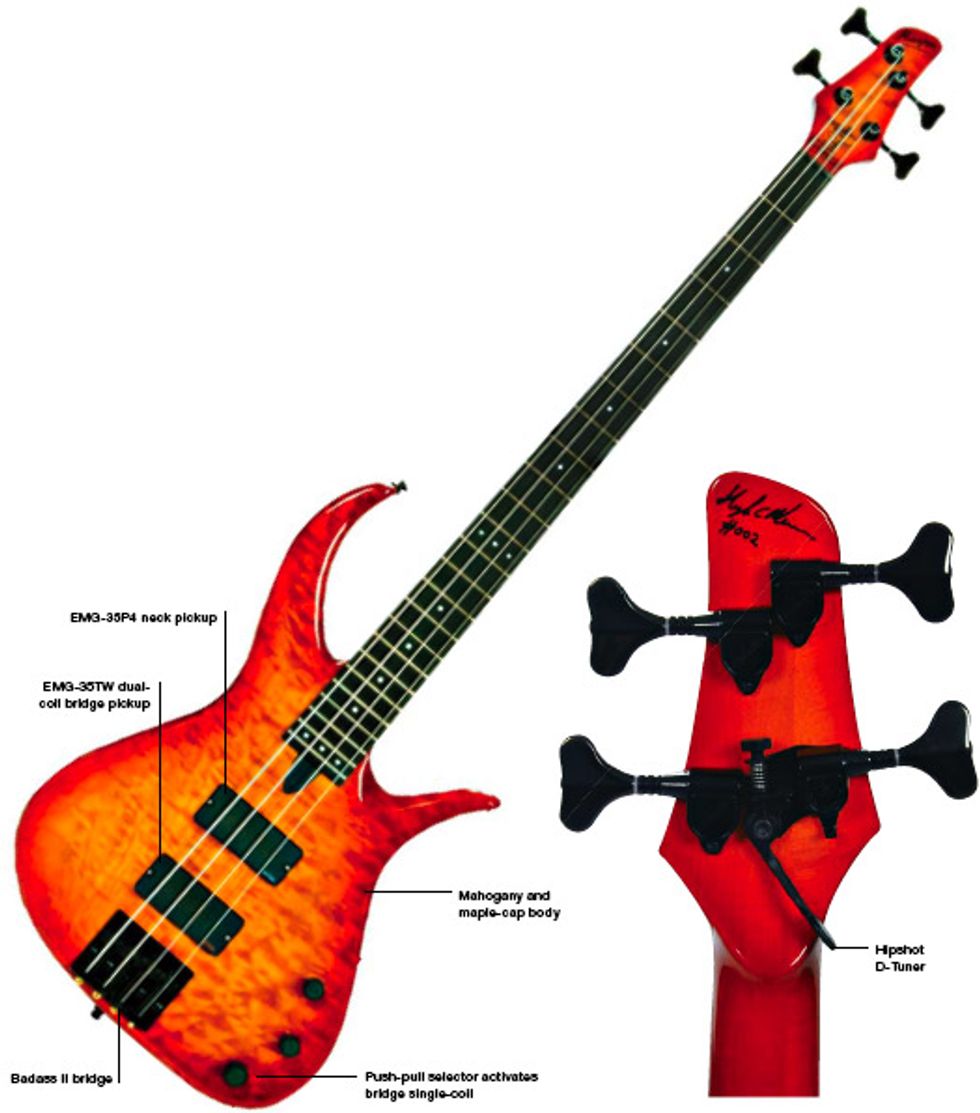
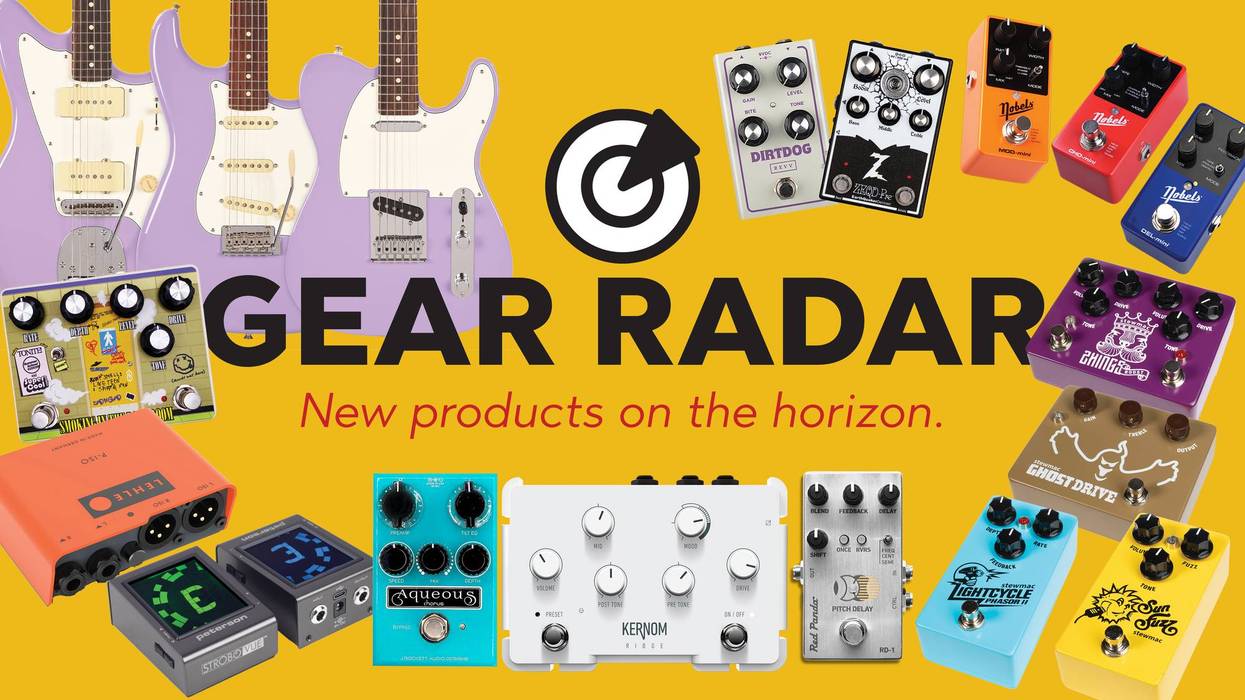
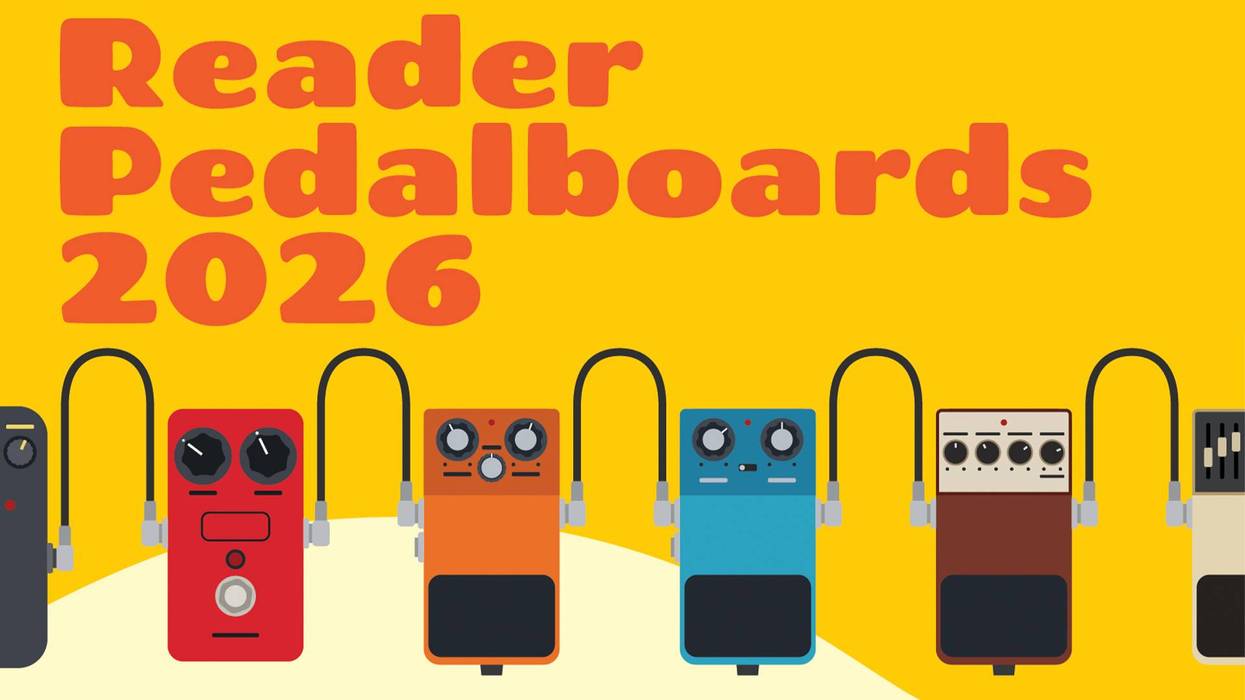
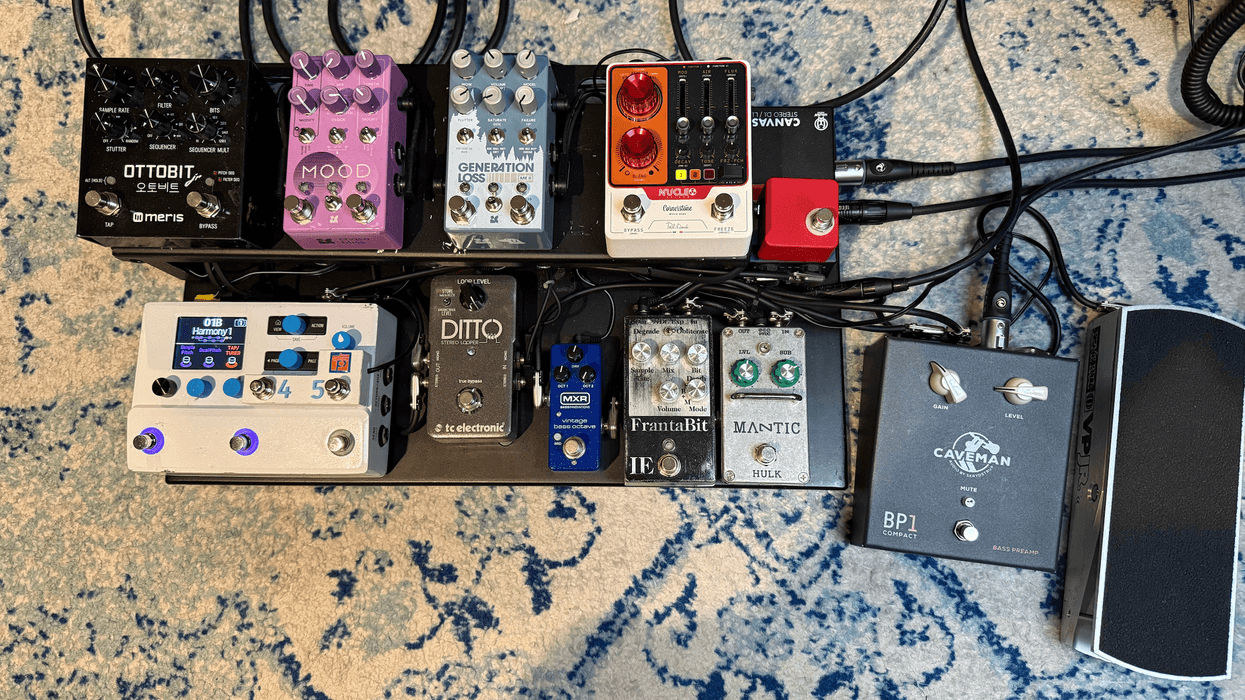
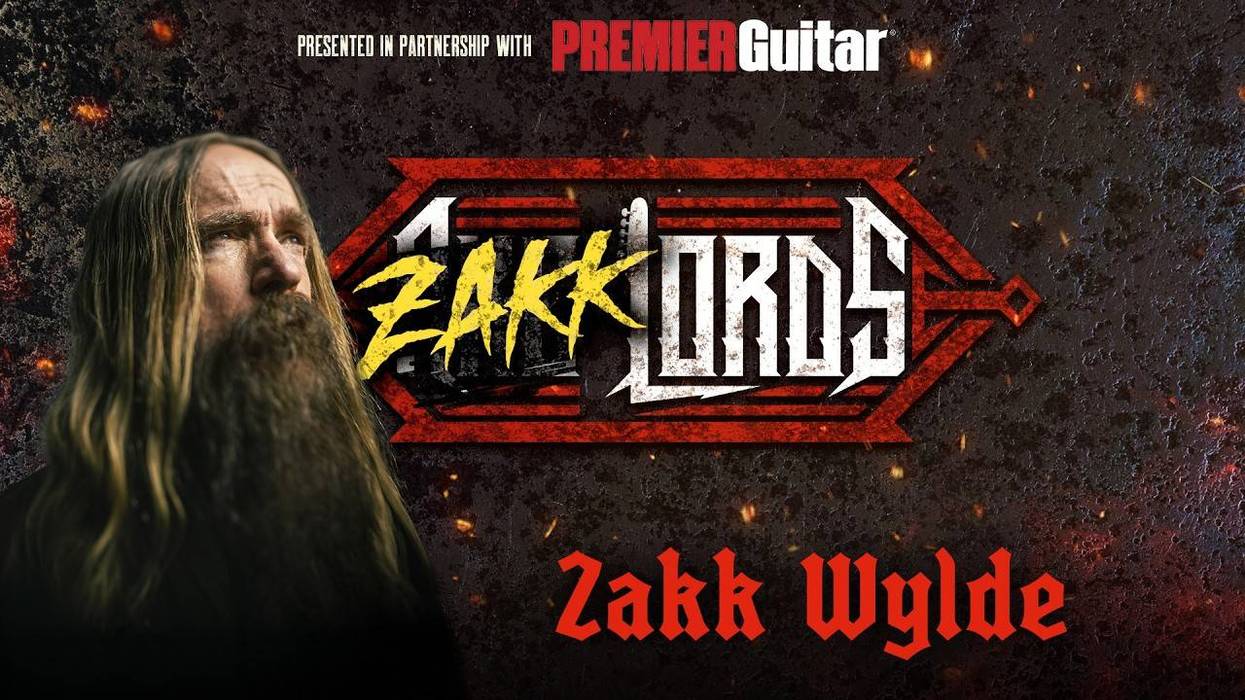
![Rig Rundown: AFI [2025]](https://www.premierguitar.com/media-library/youtube.jpg?id=62064741&width=1245&height=700&quality=70&coordinates=0%2C0%2C0%2C0)












 Shop Scott's Rig
Shop Scott's Rig
